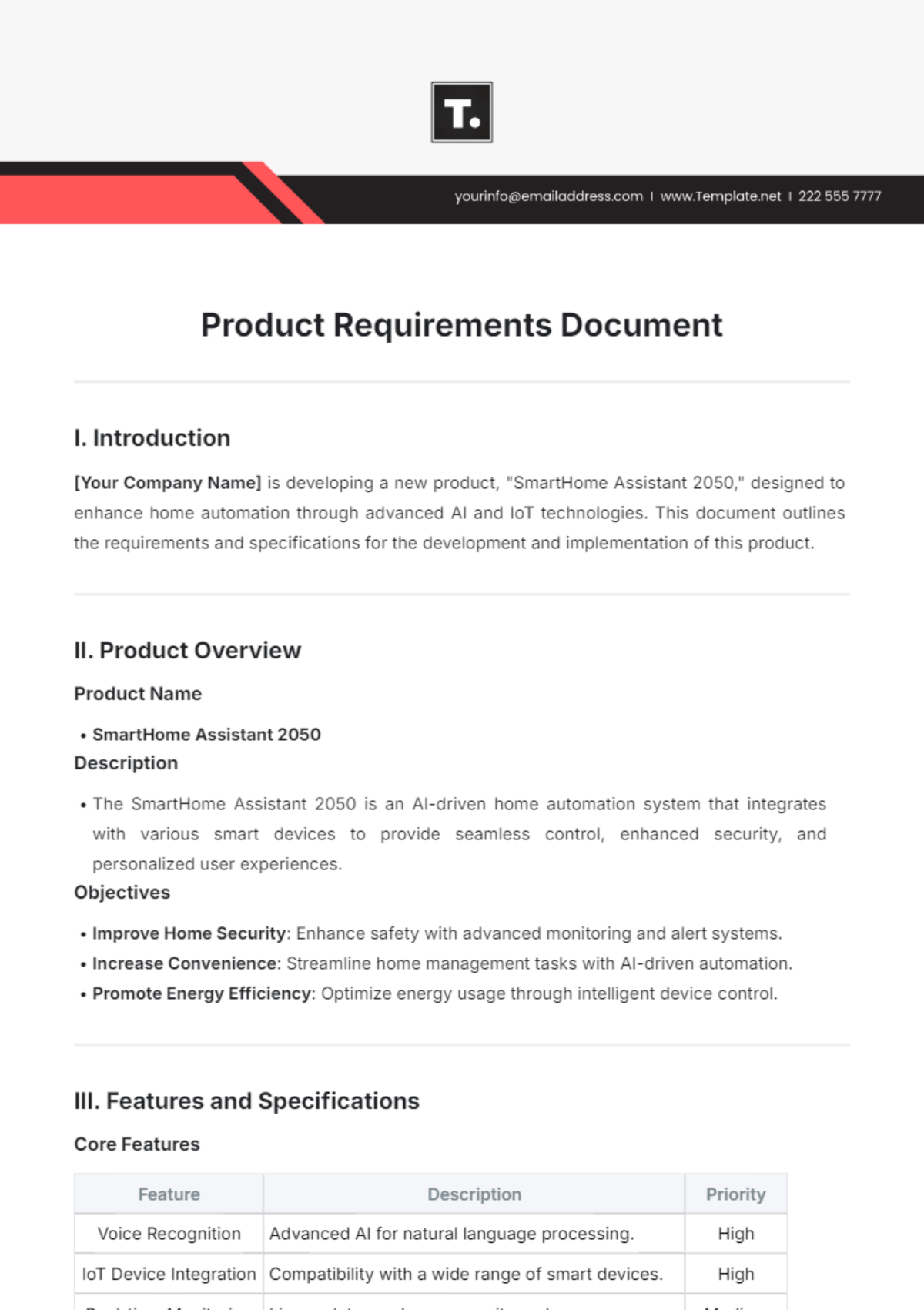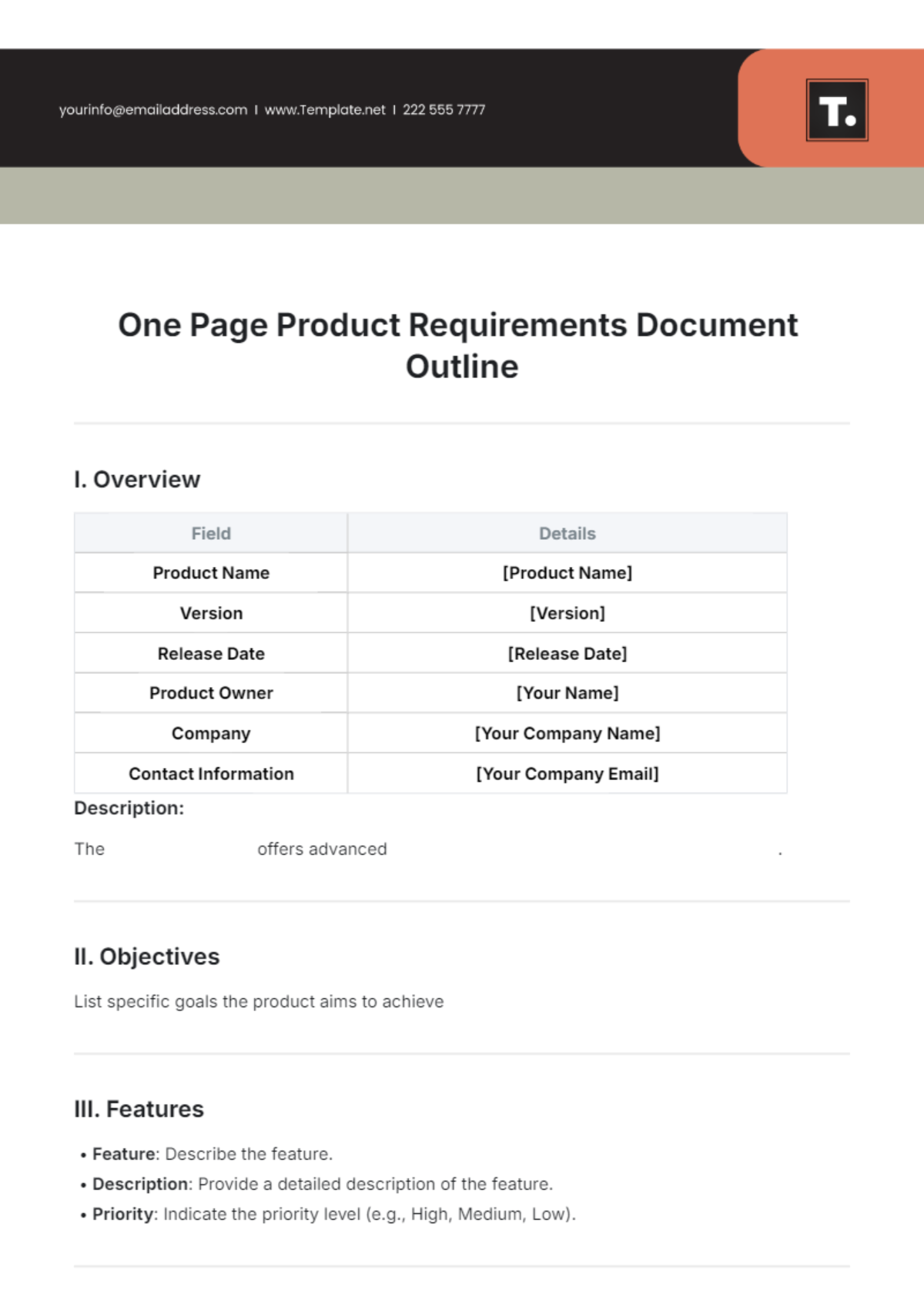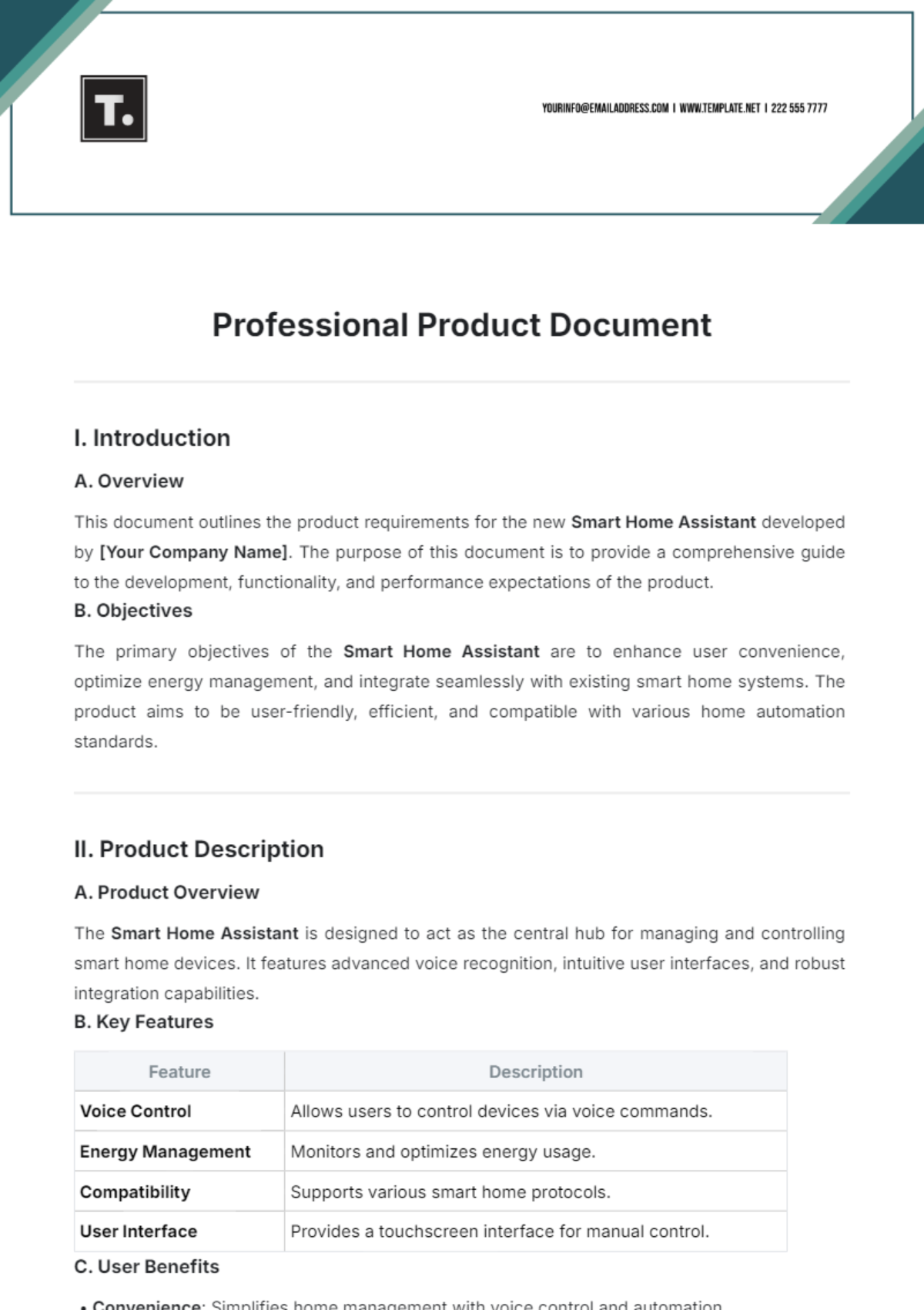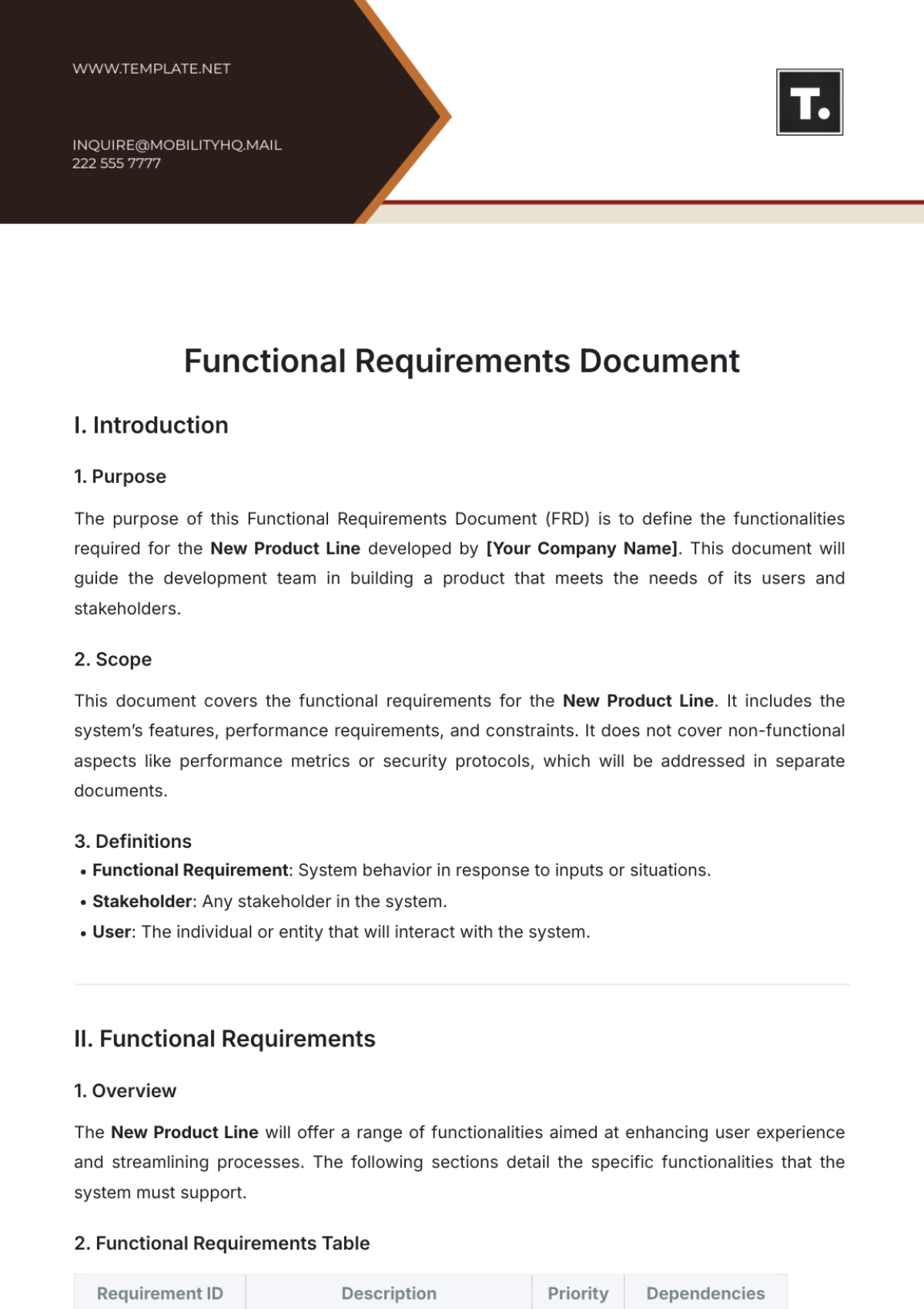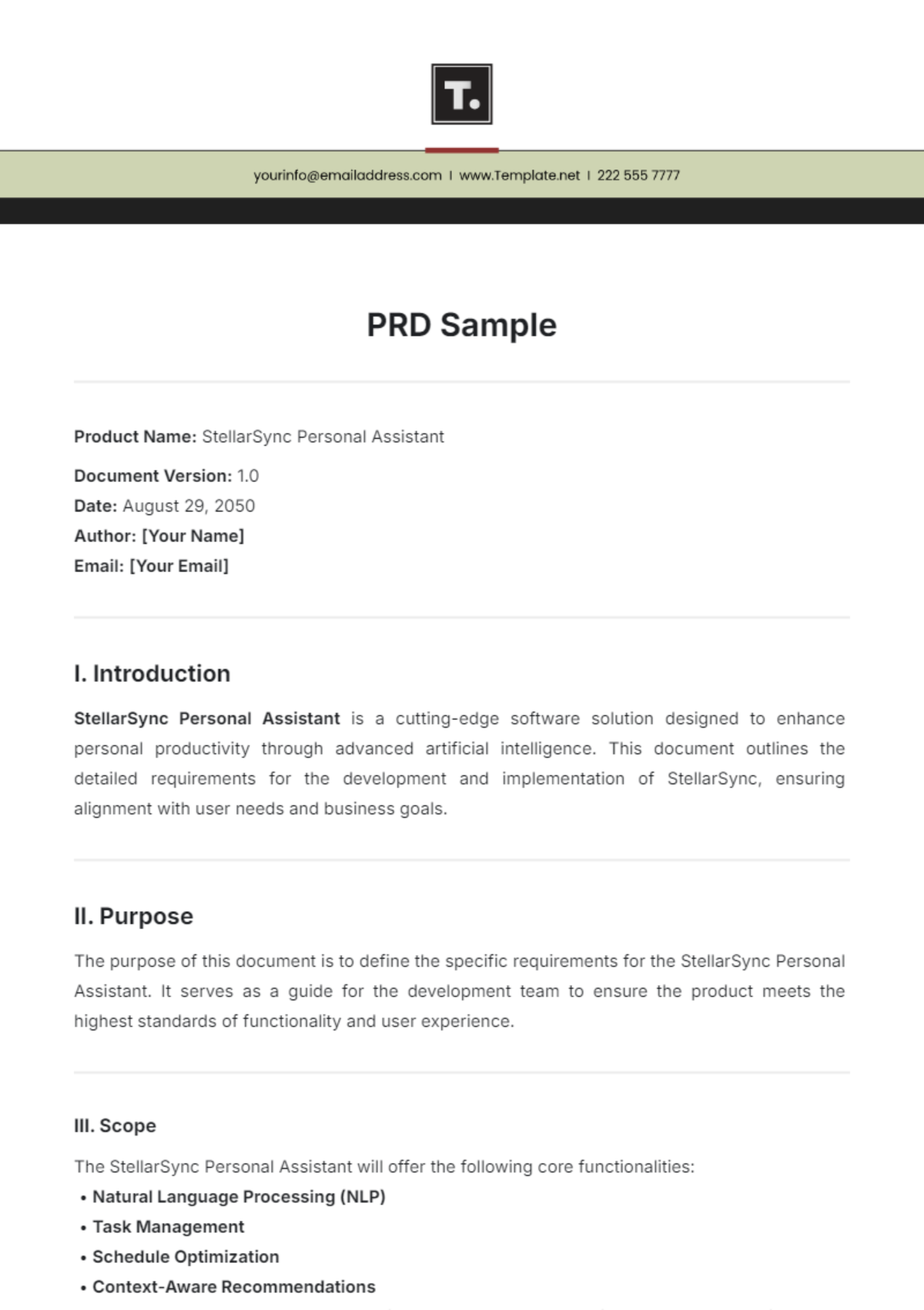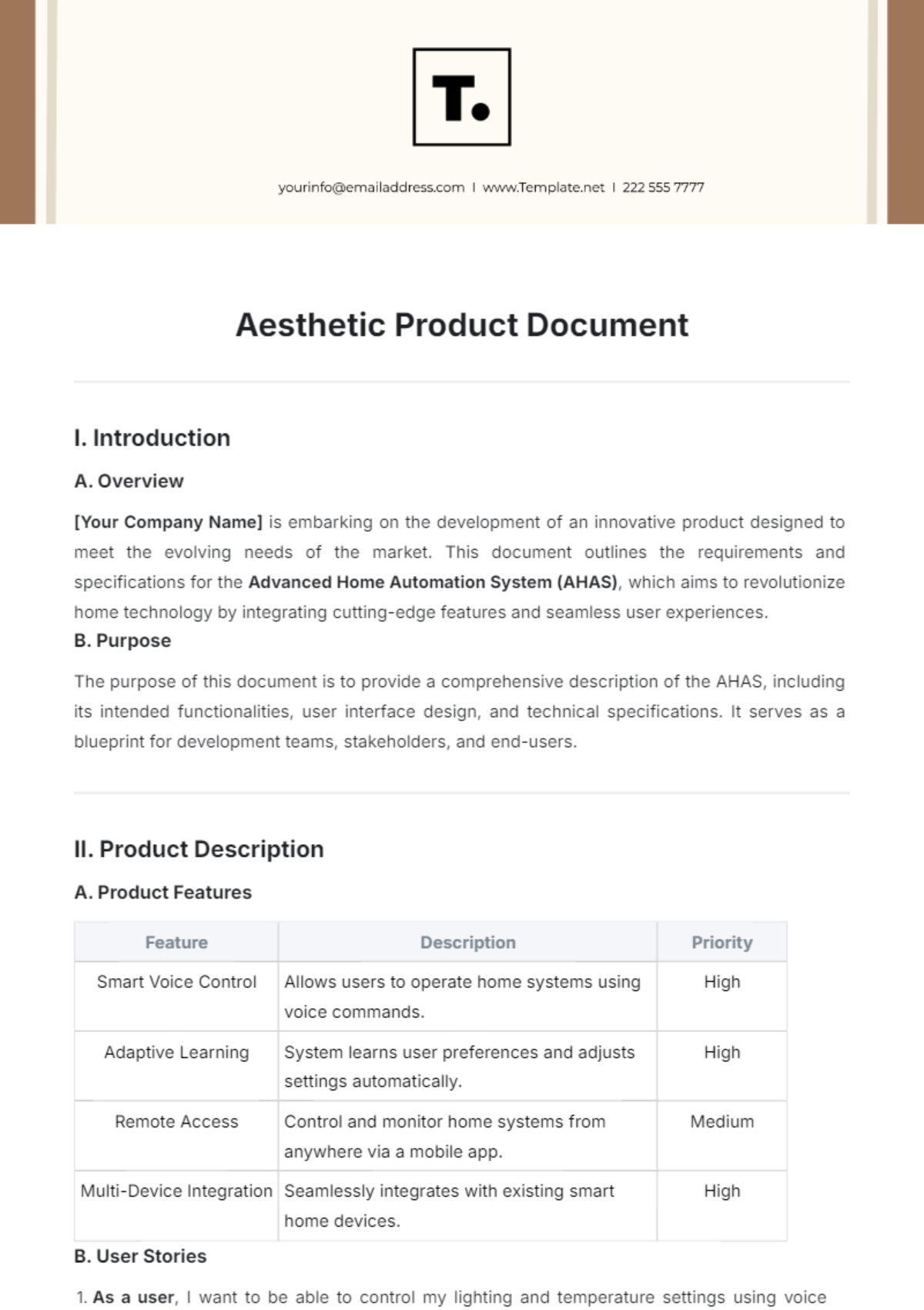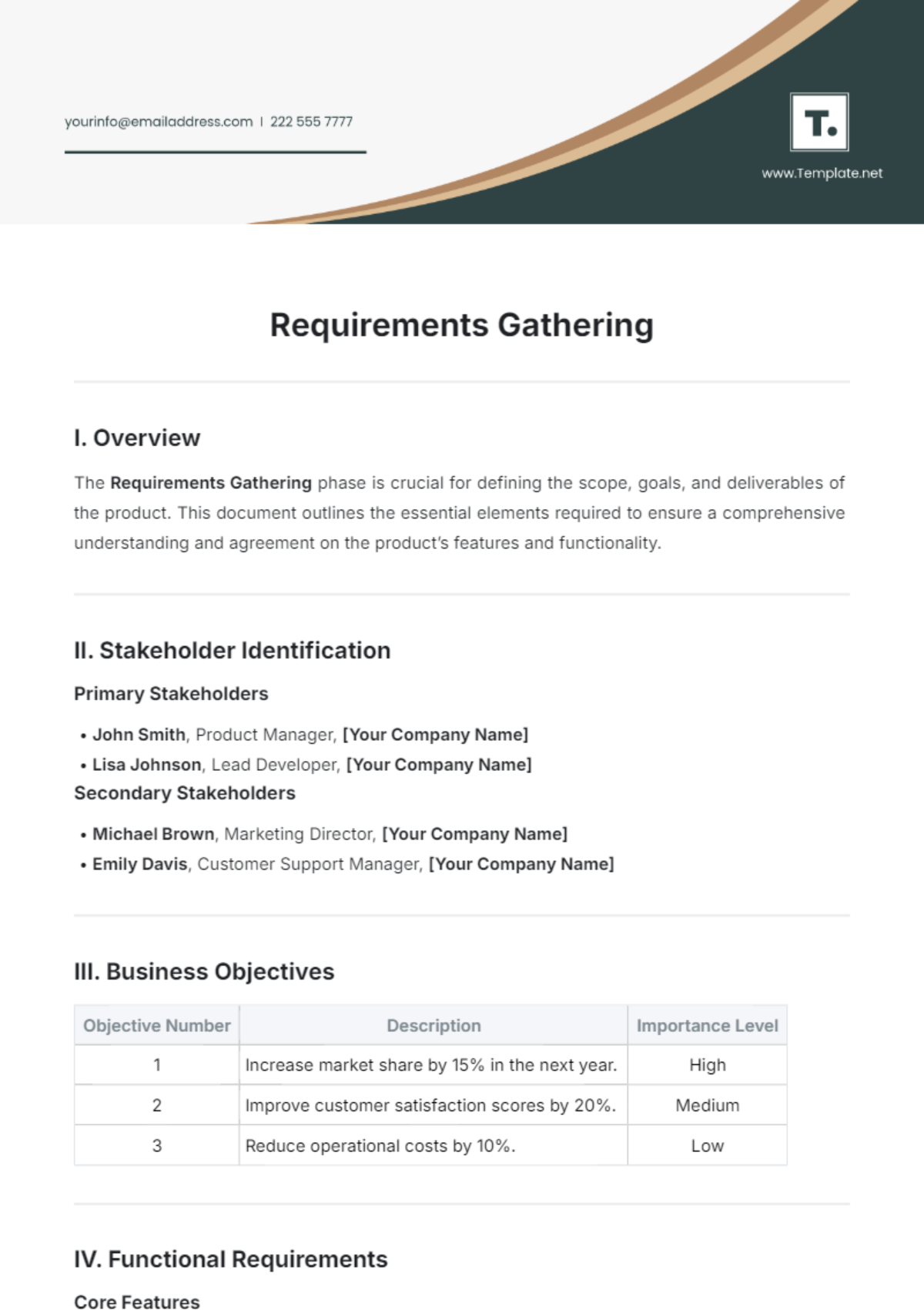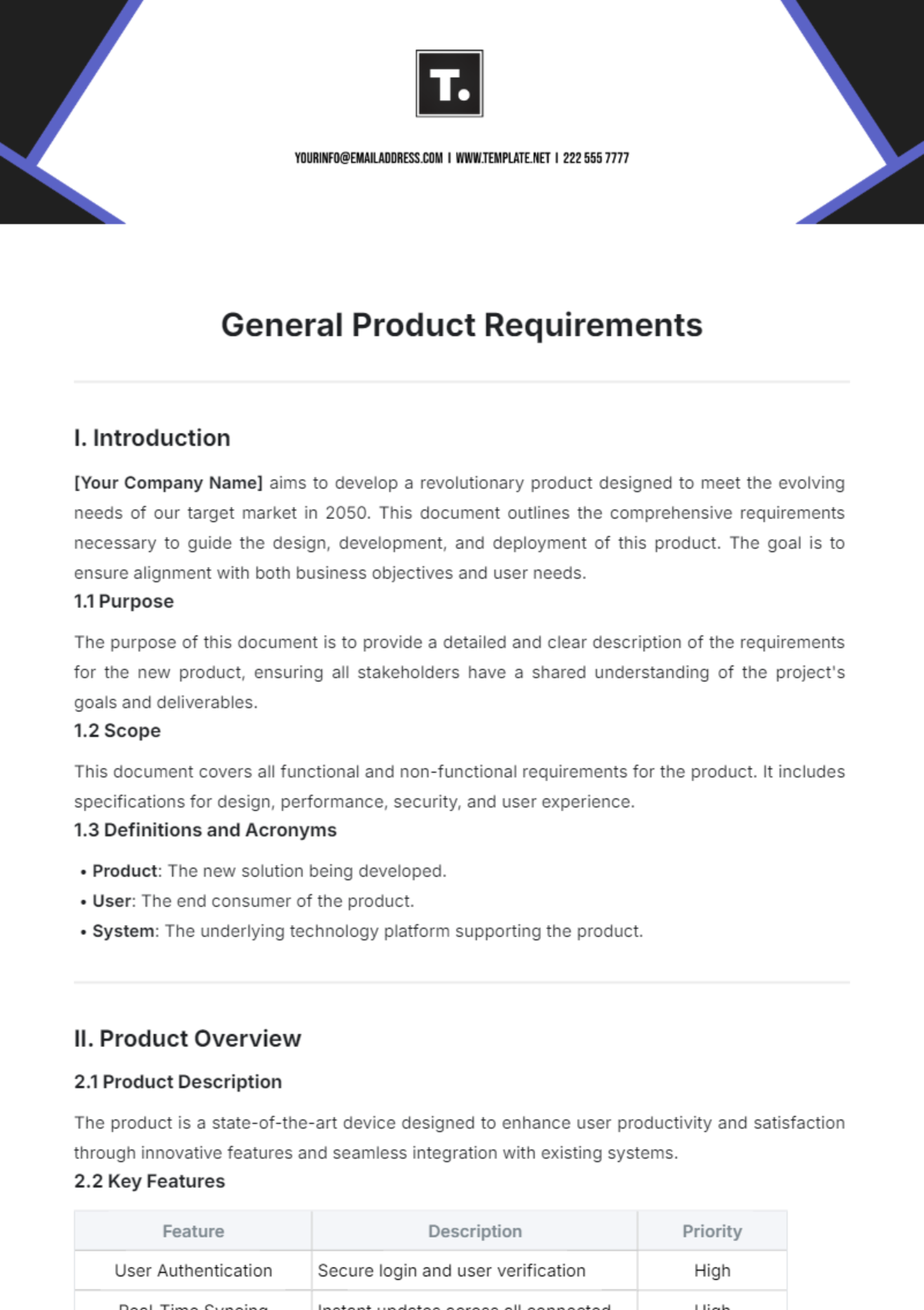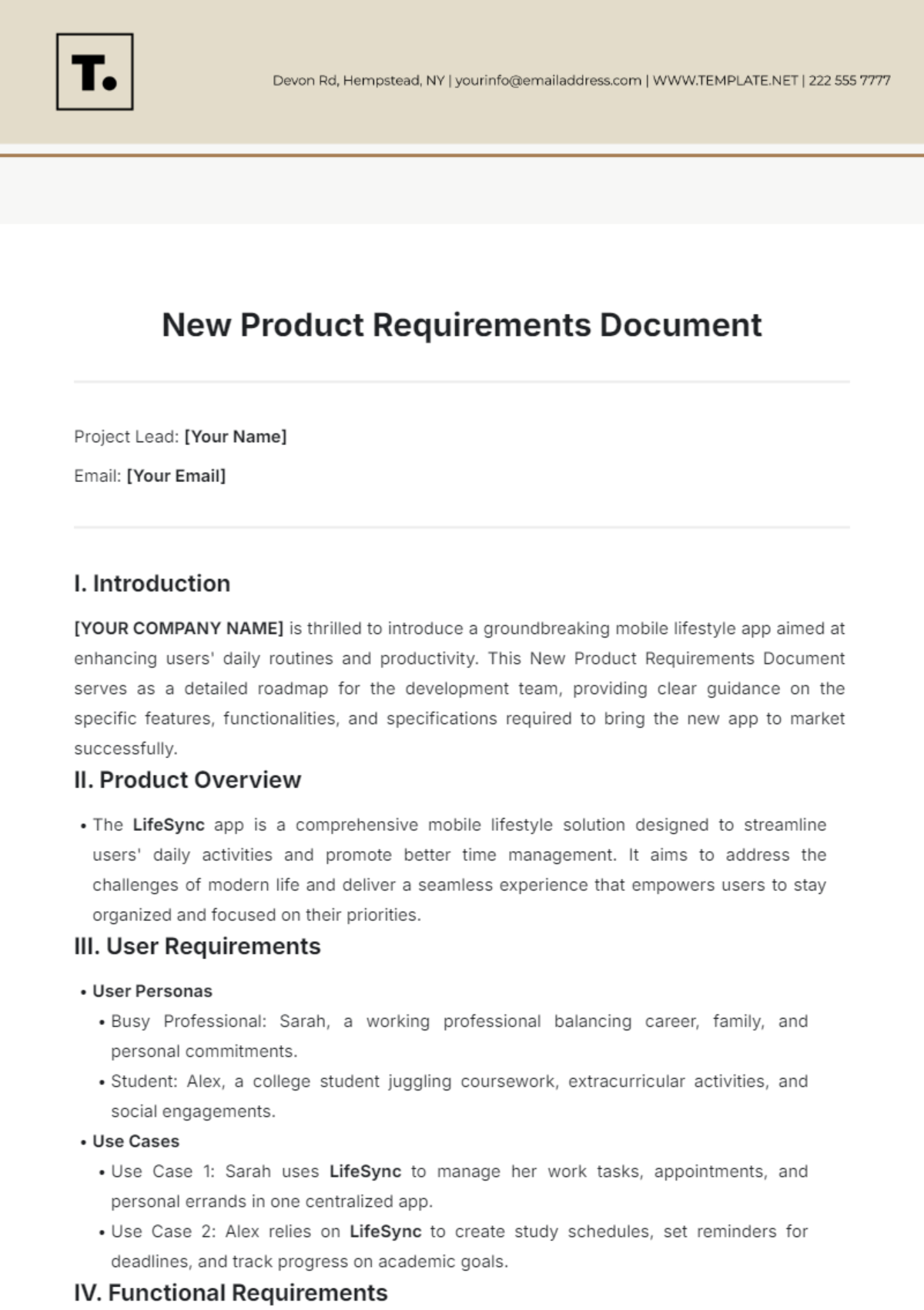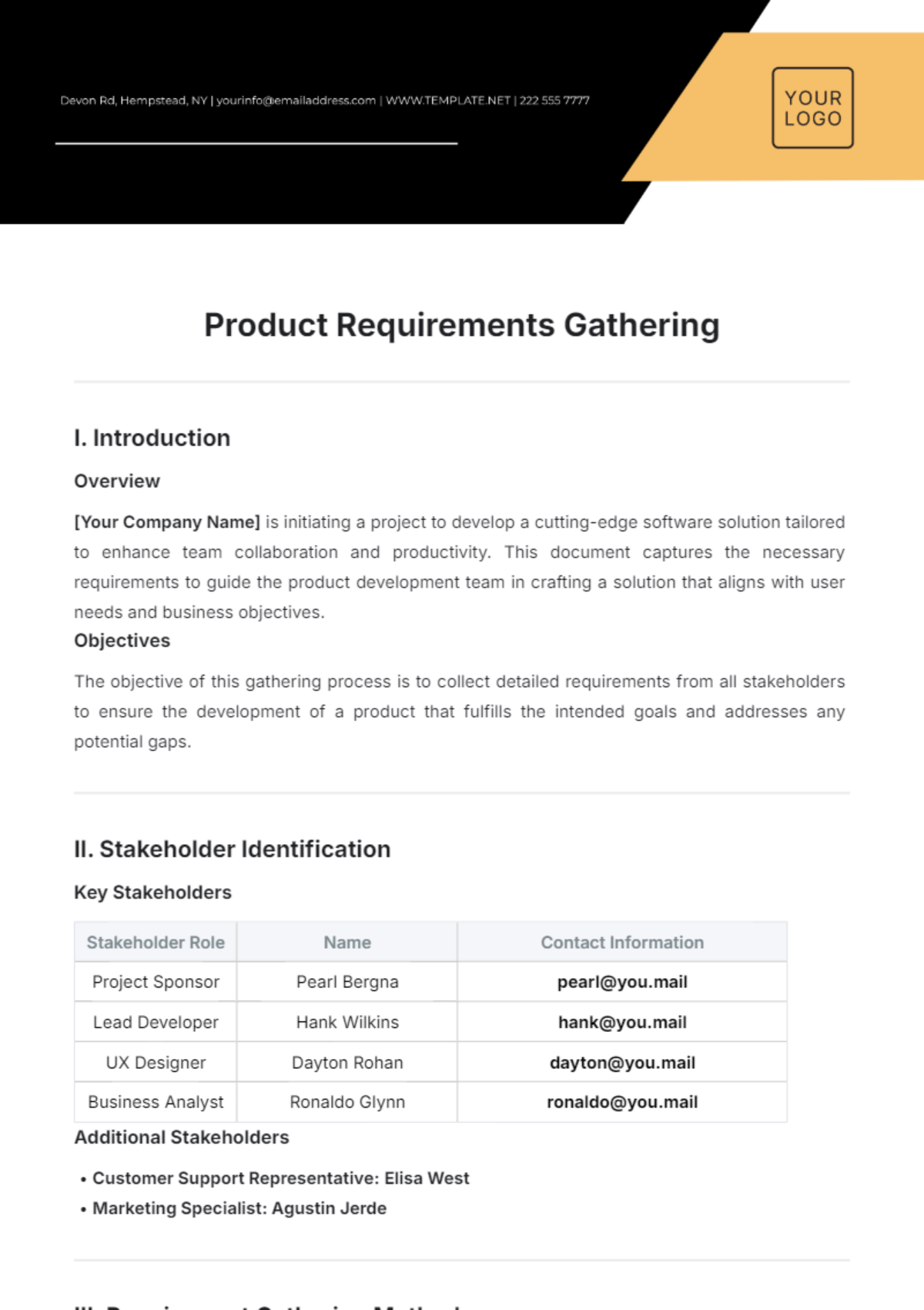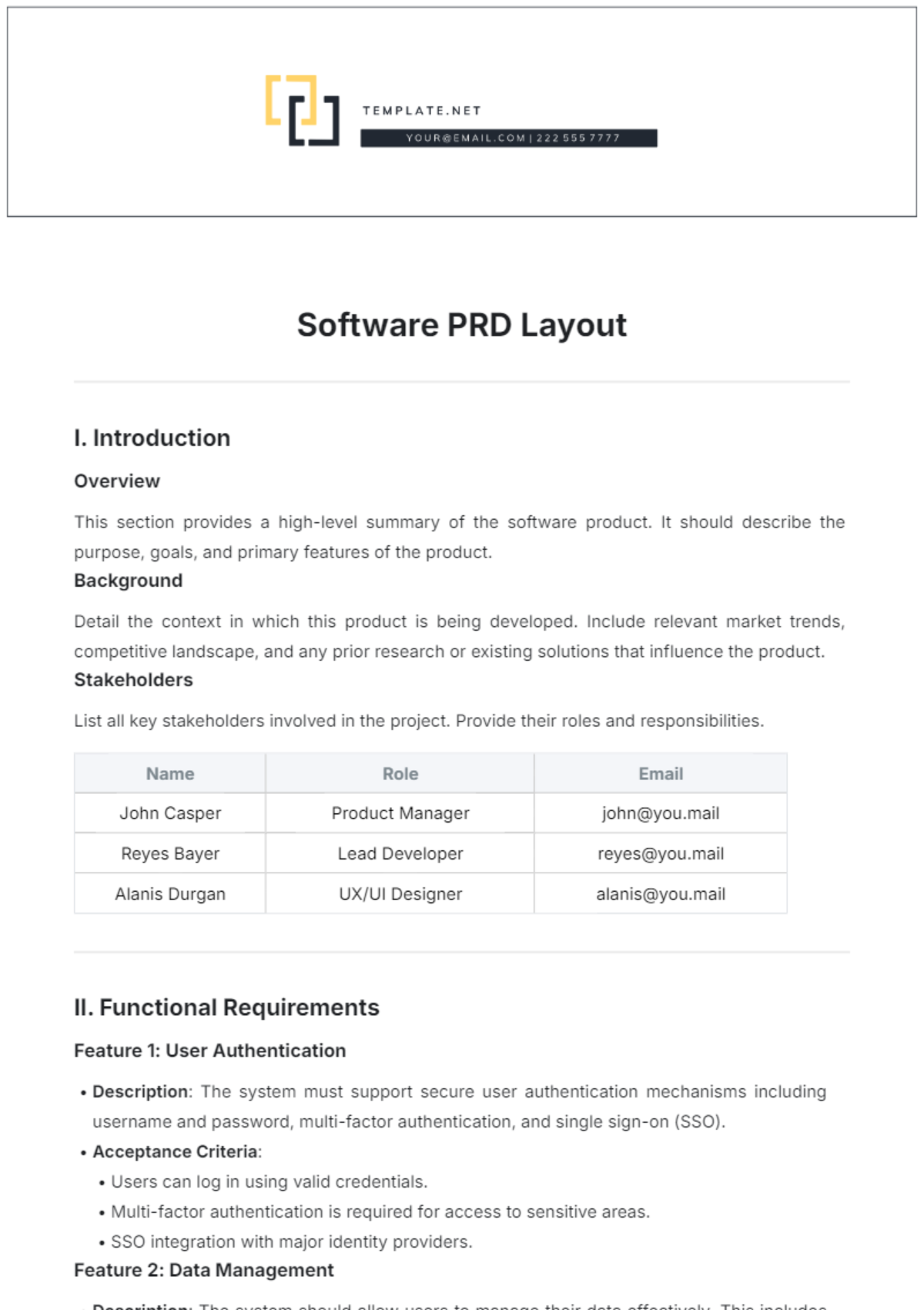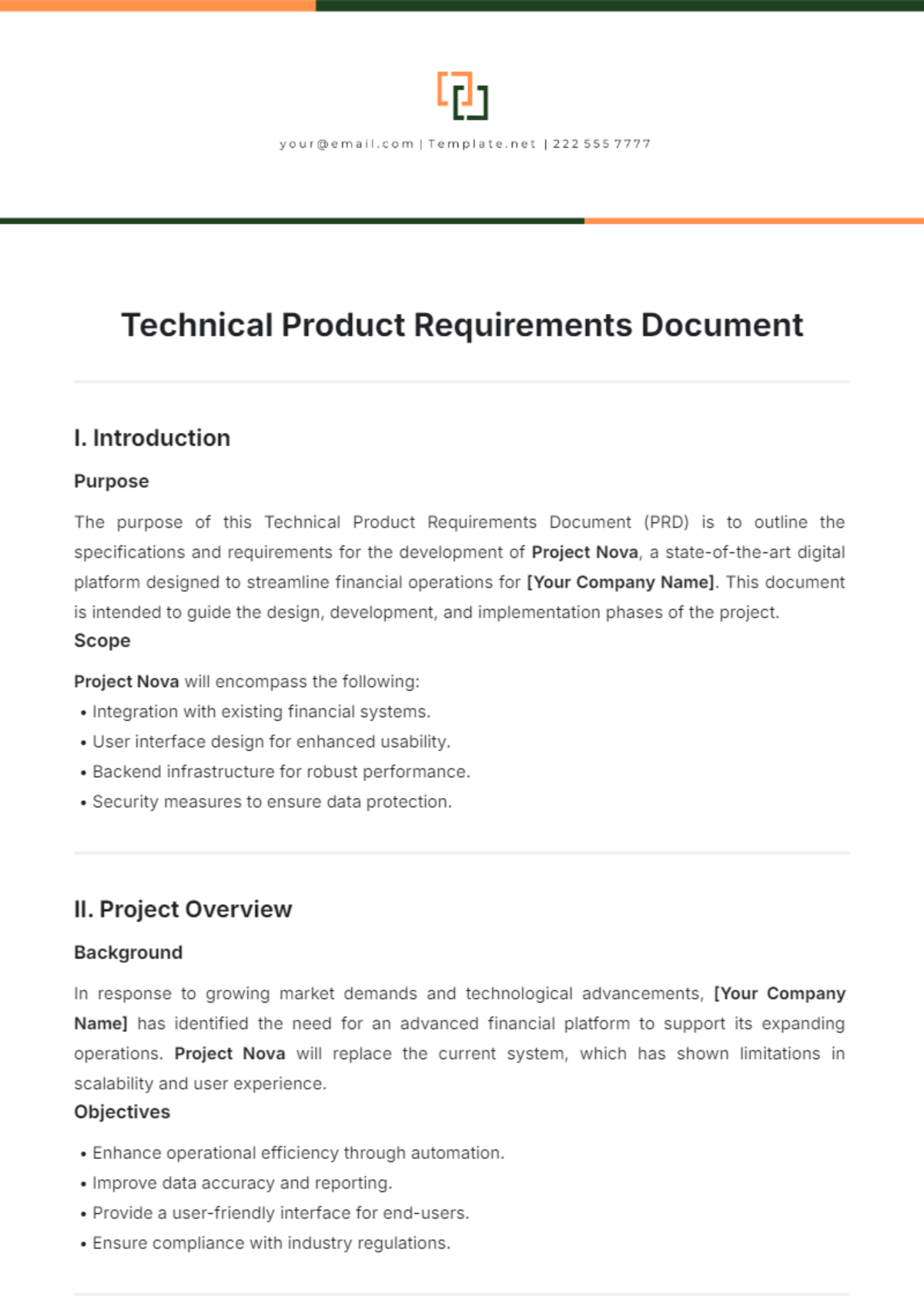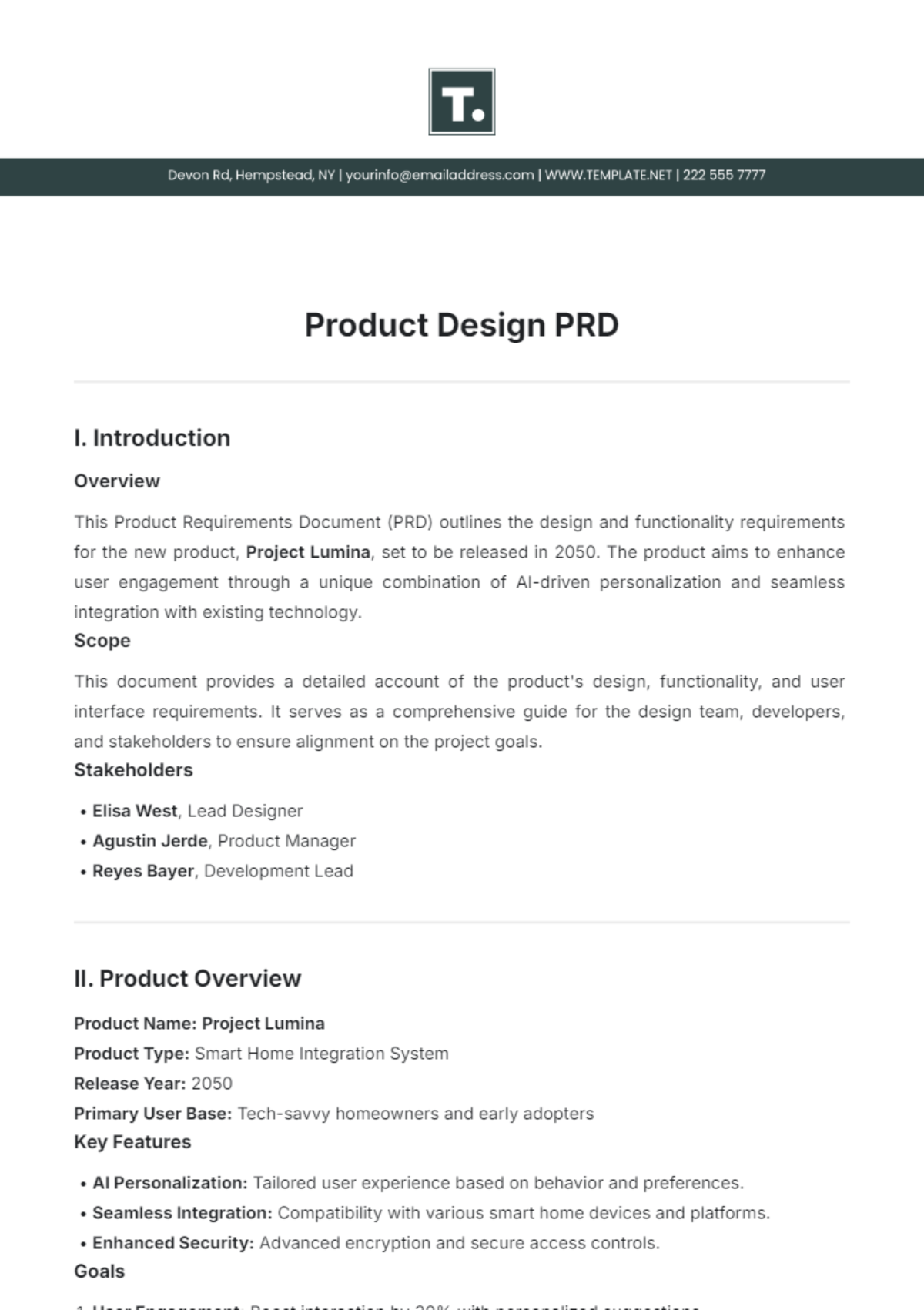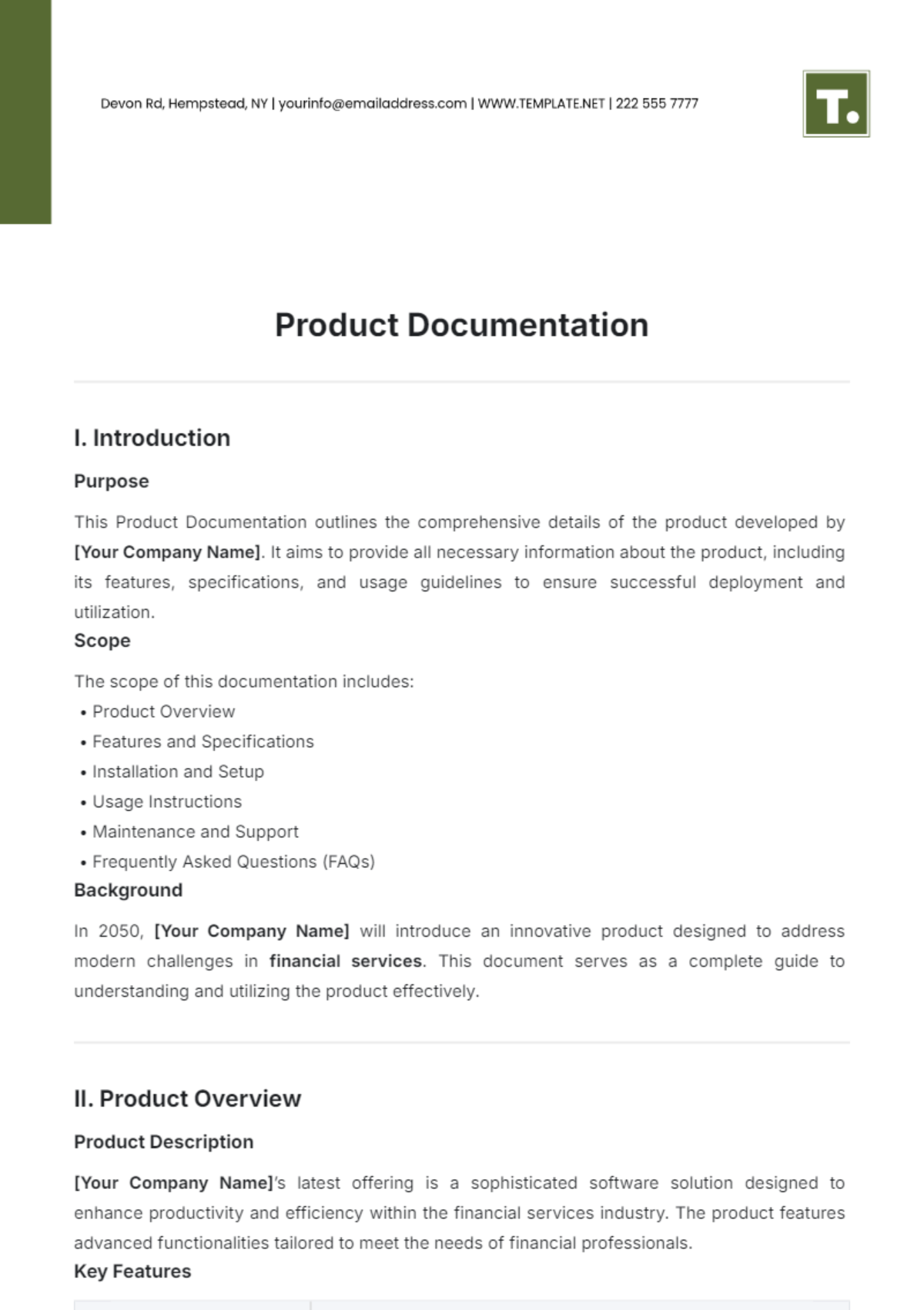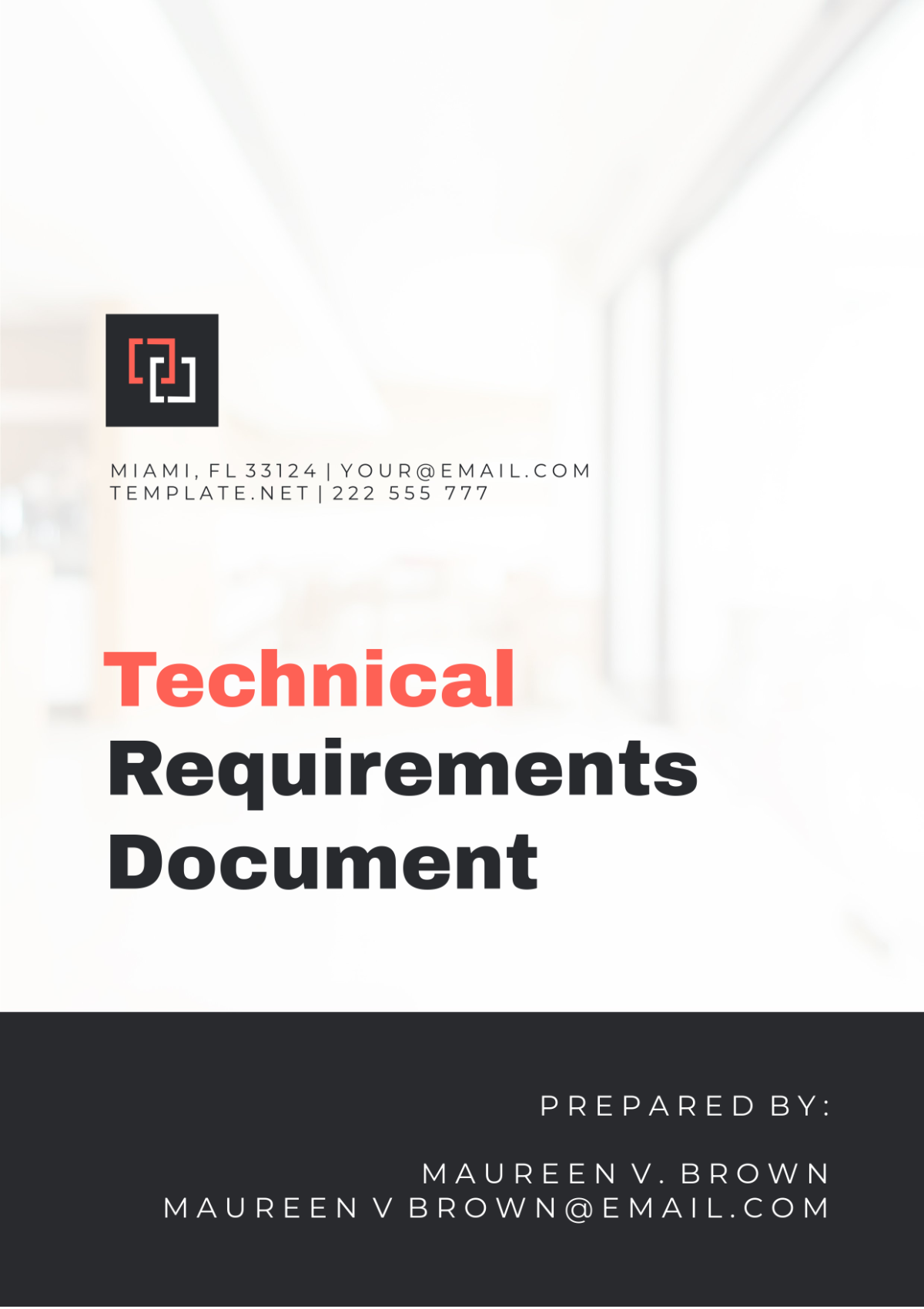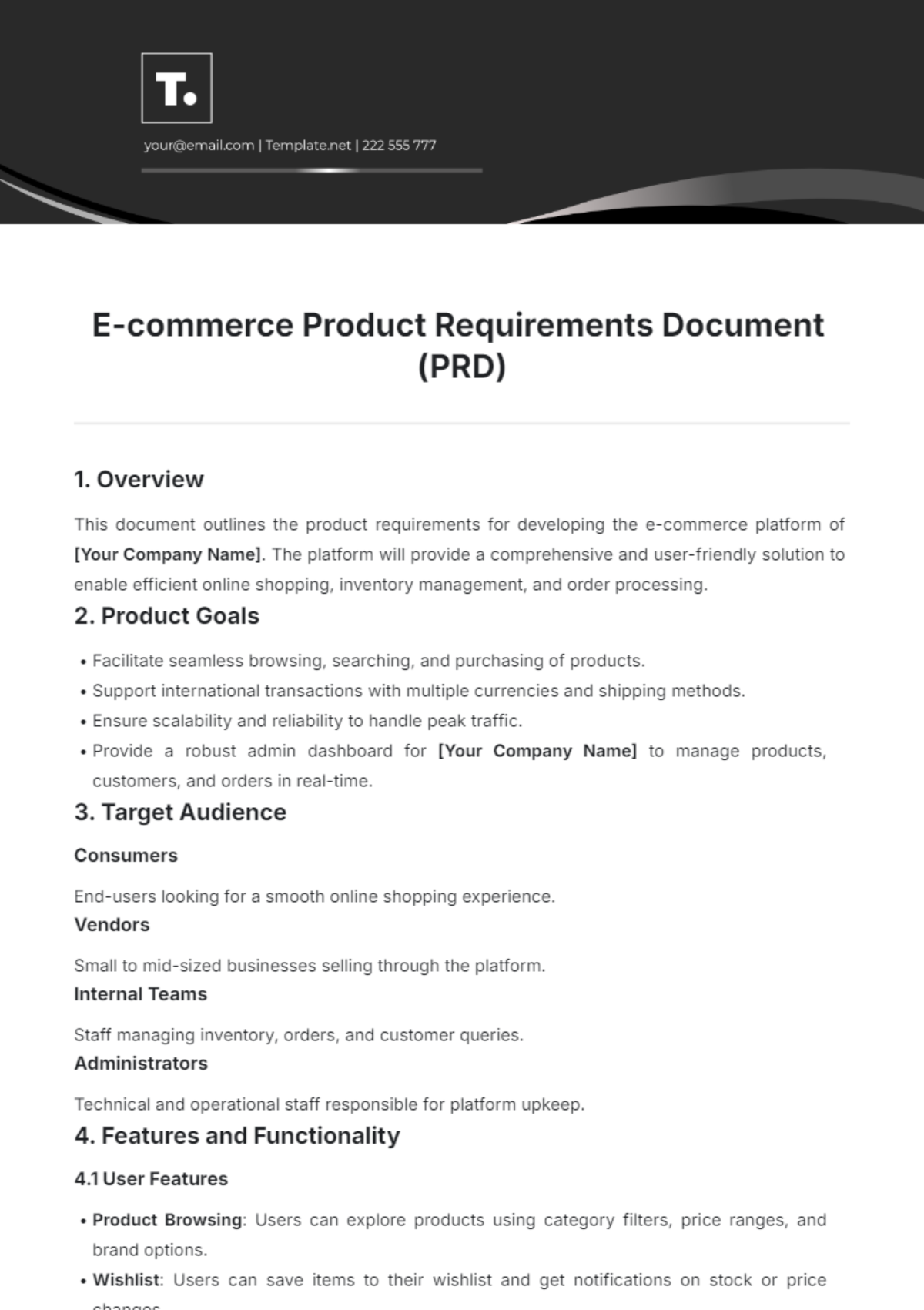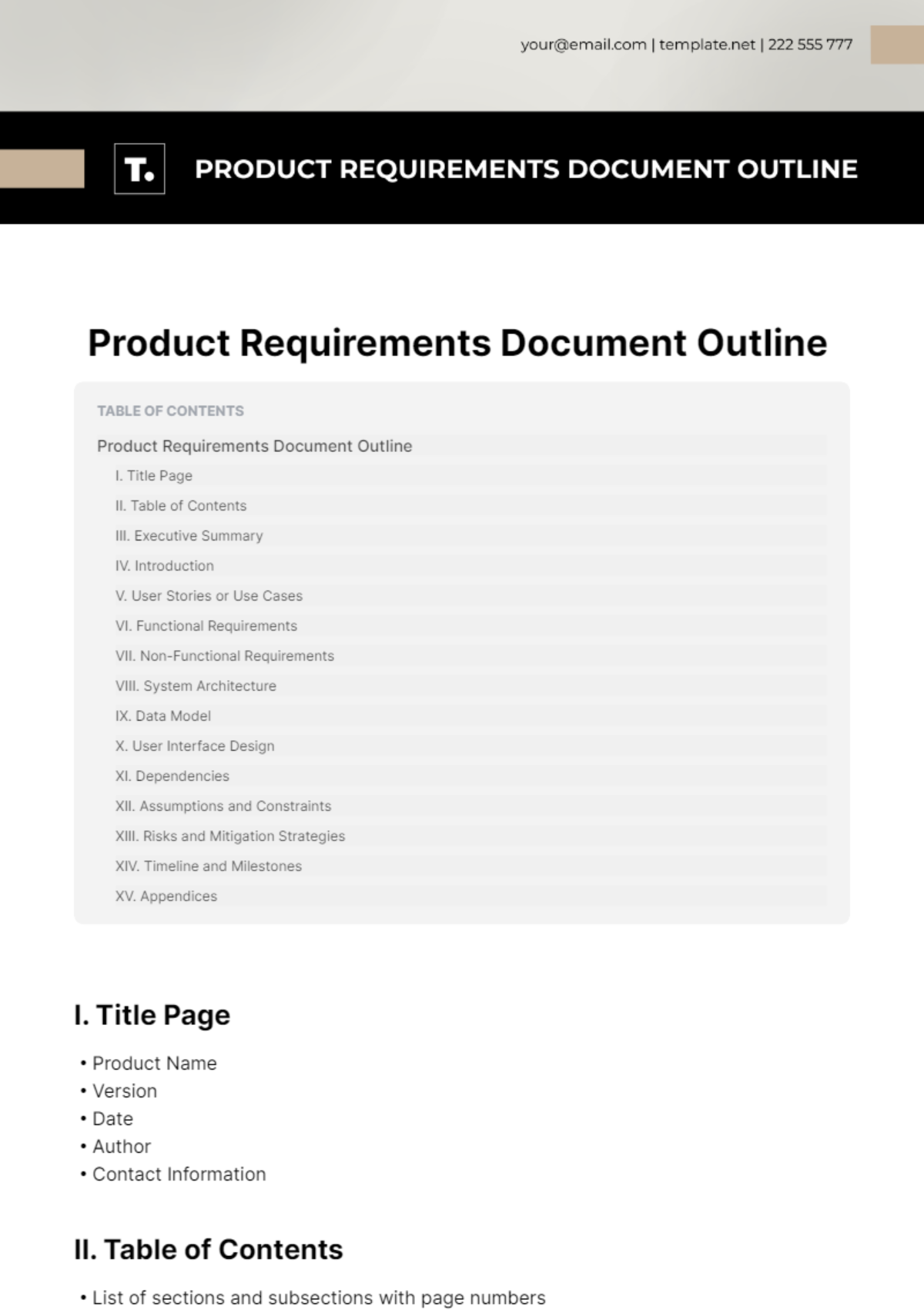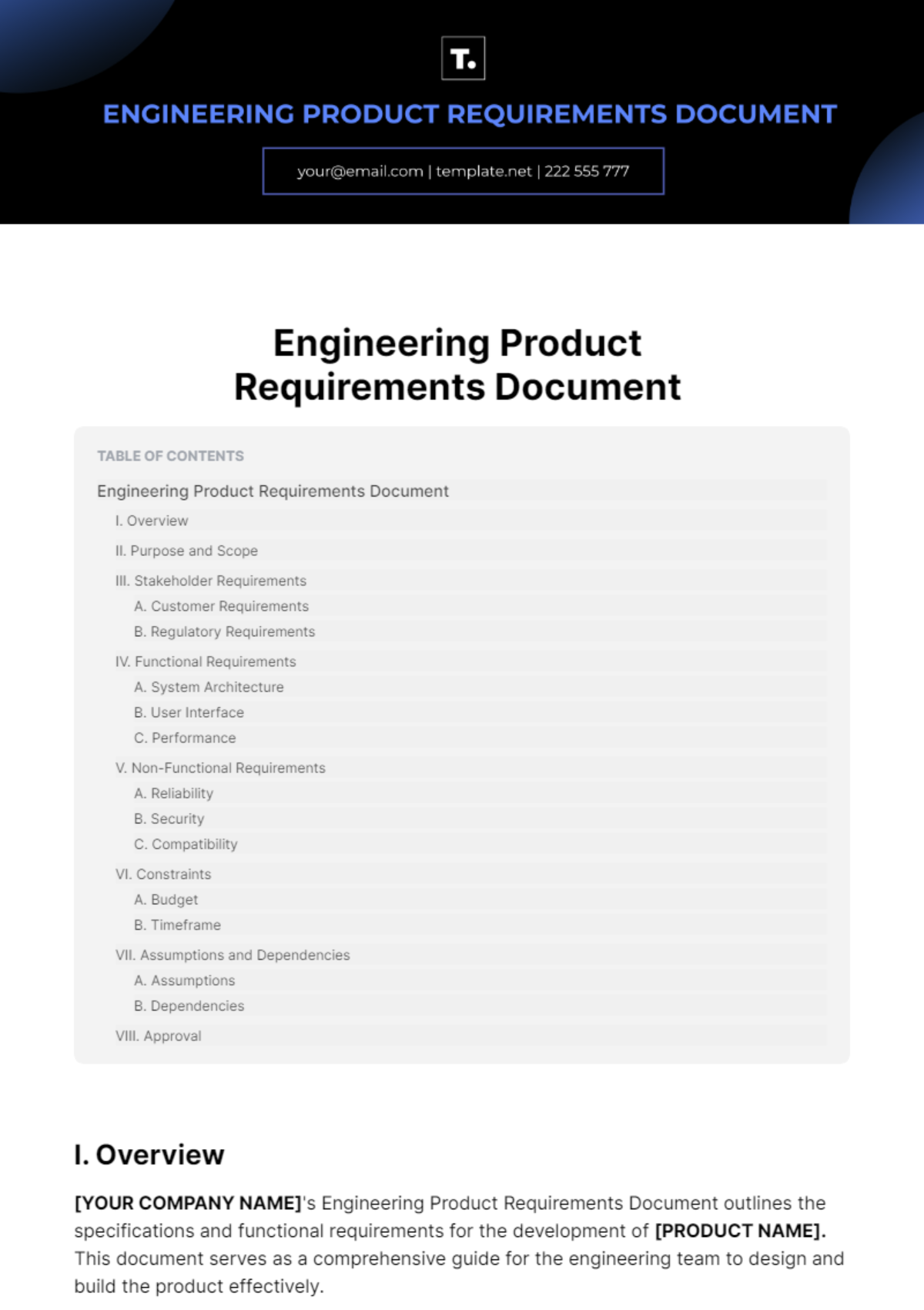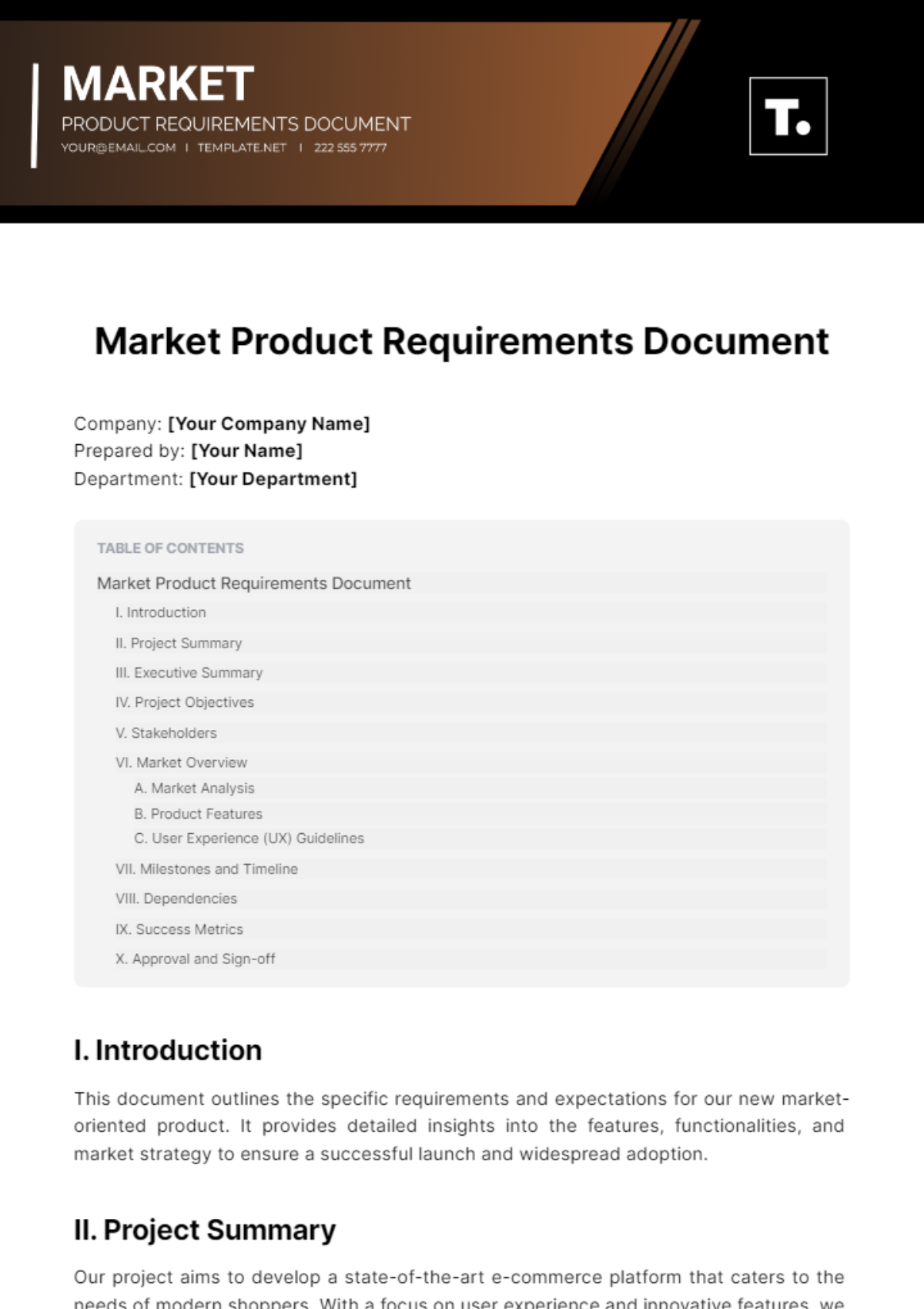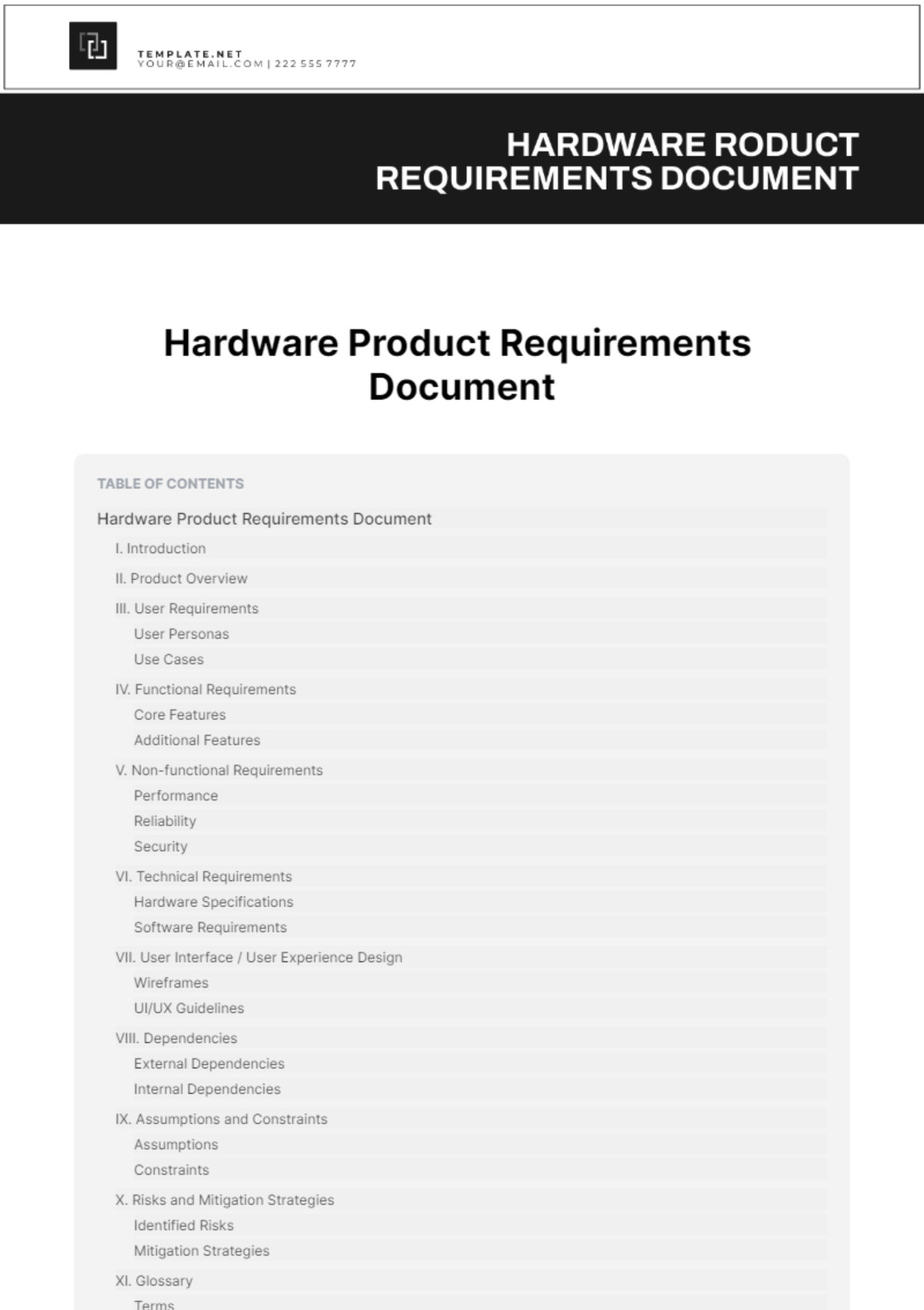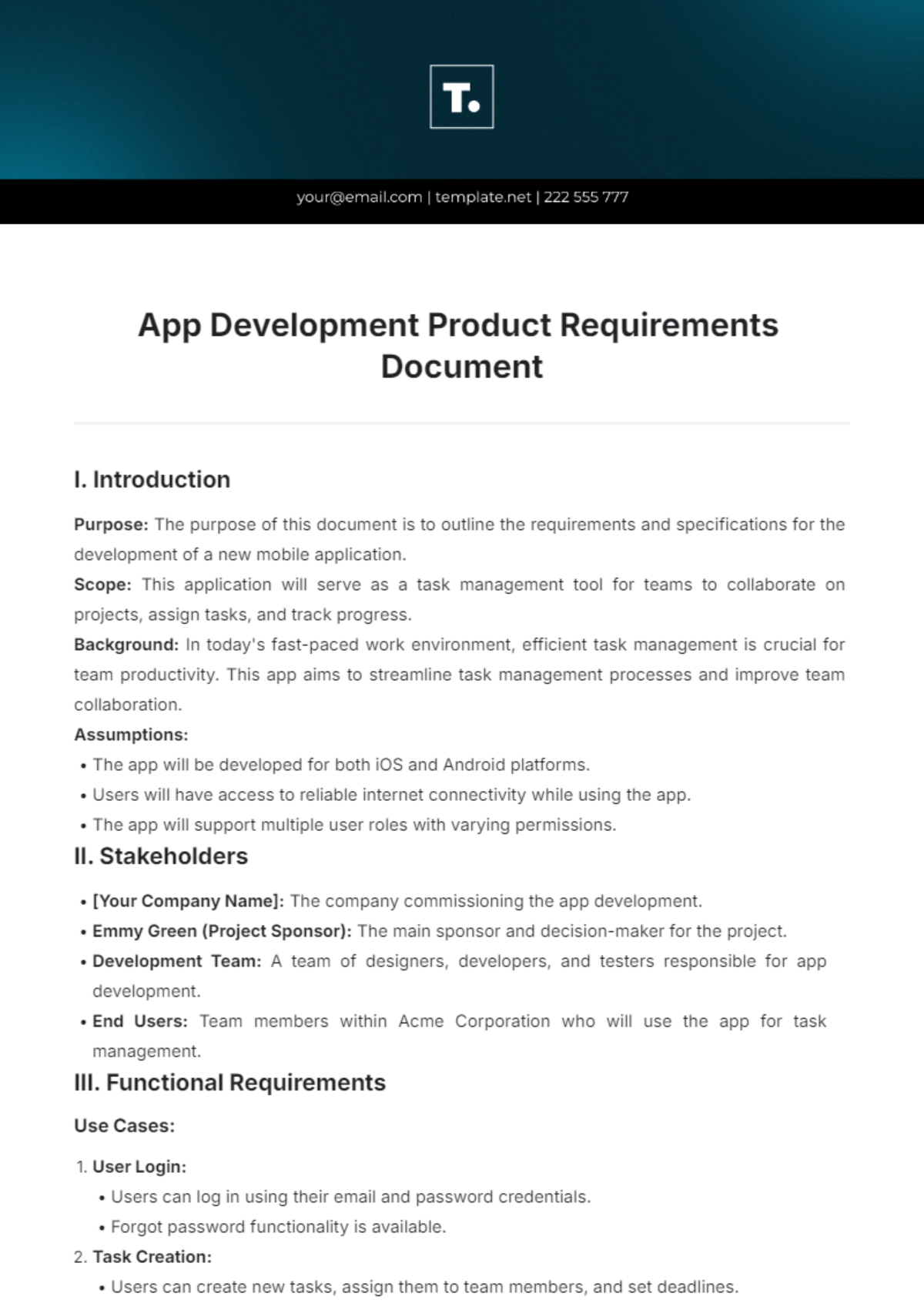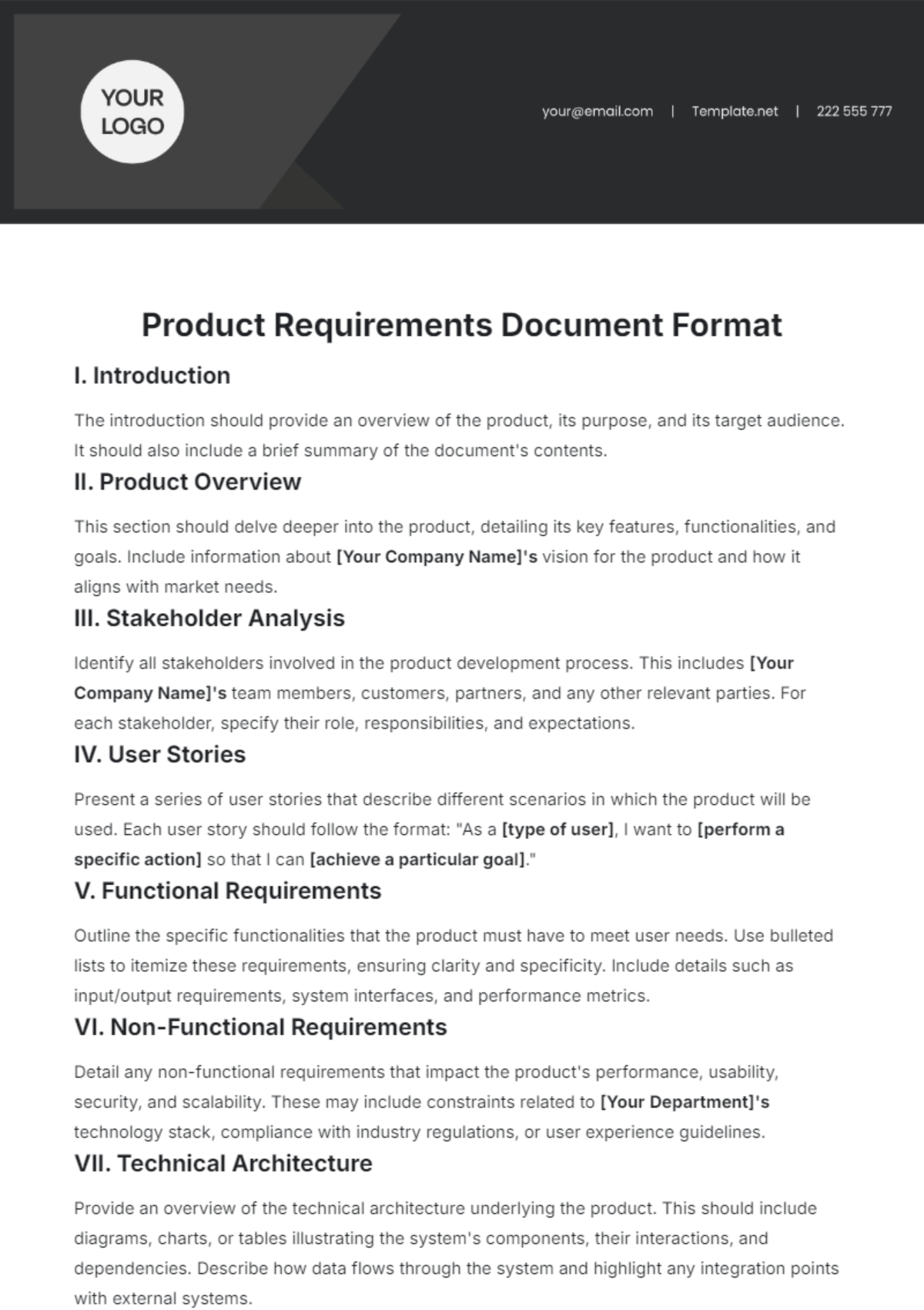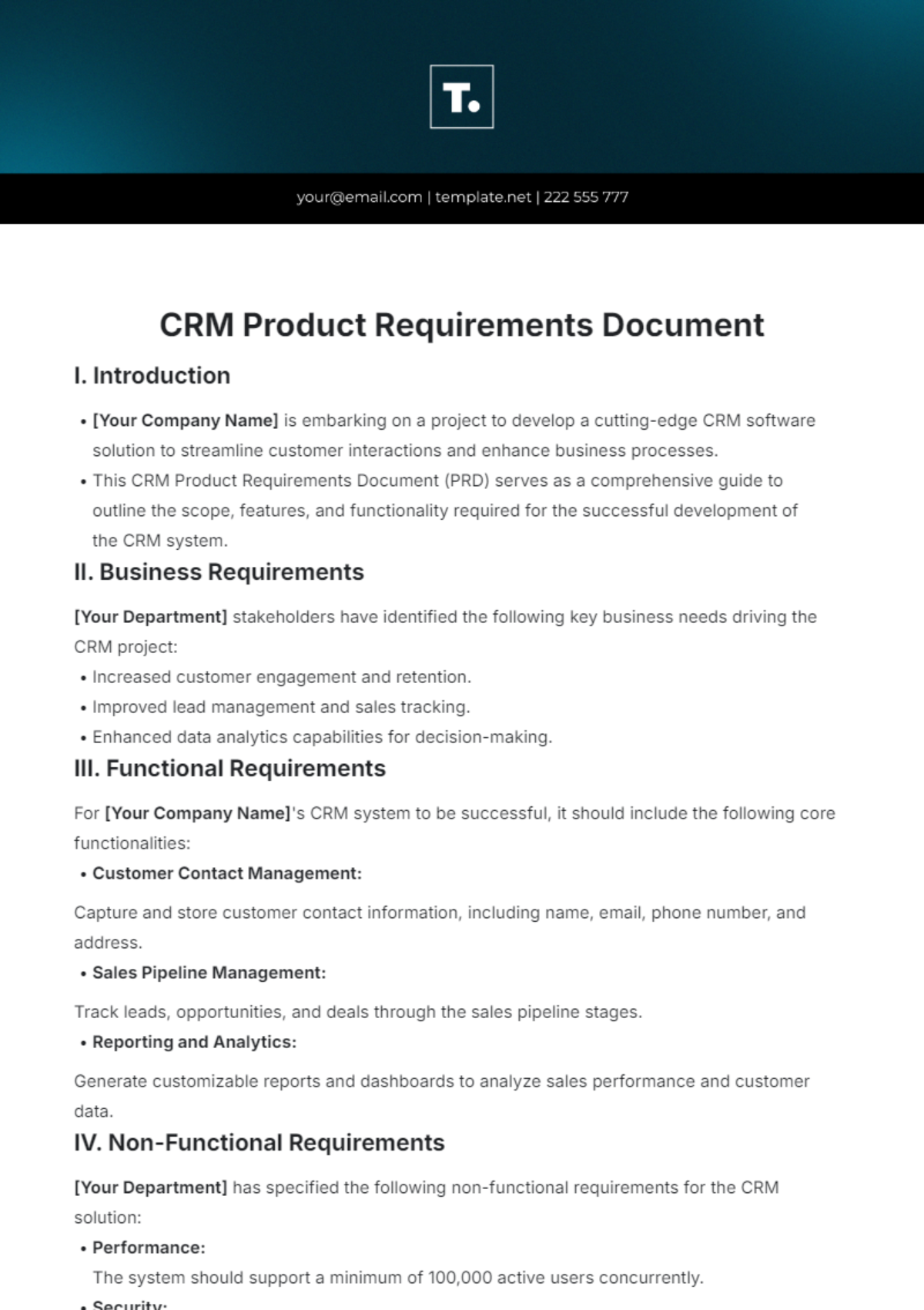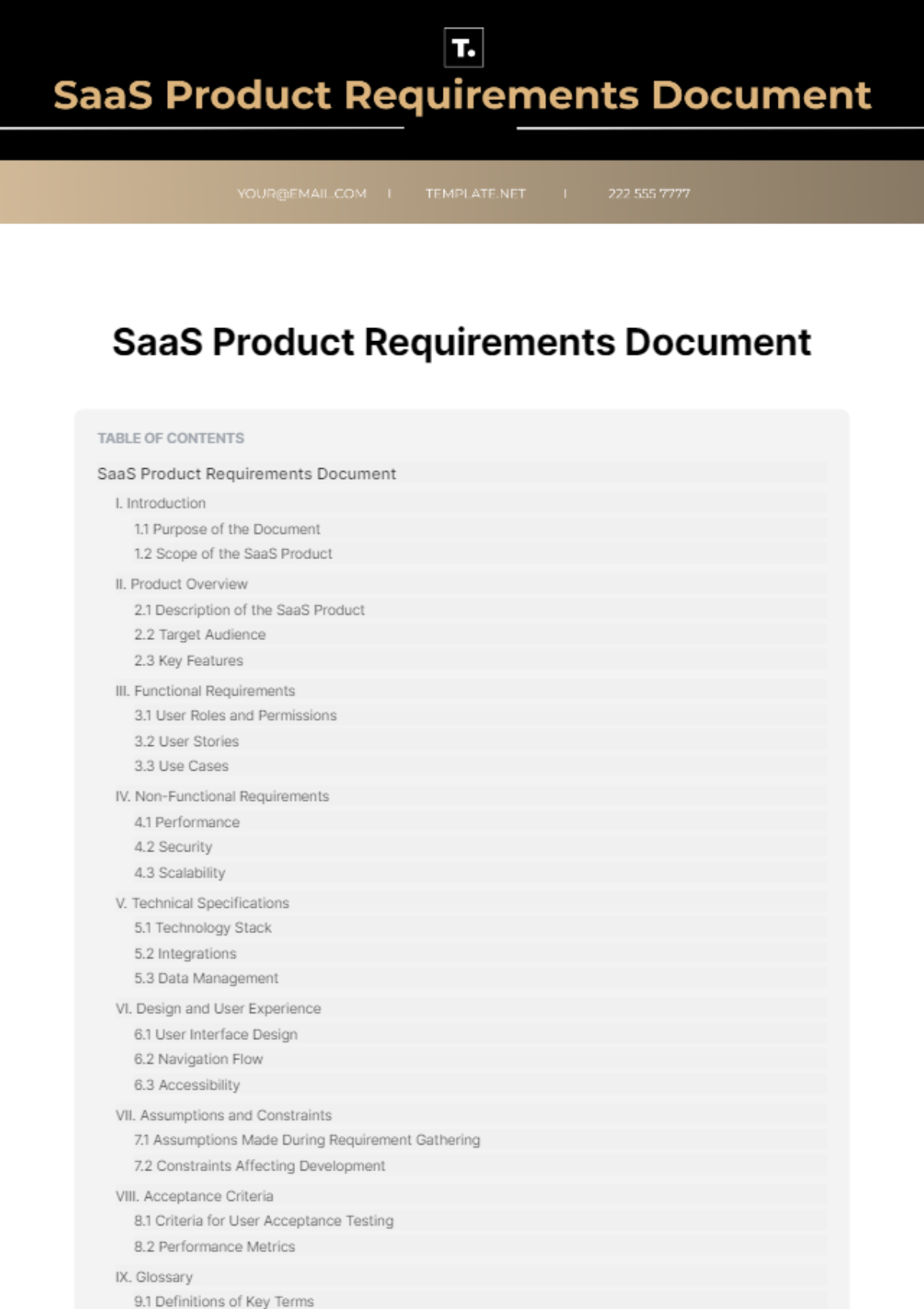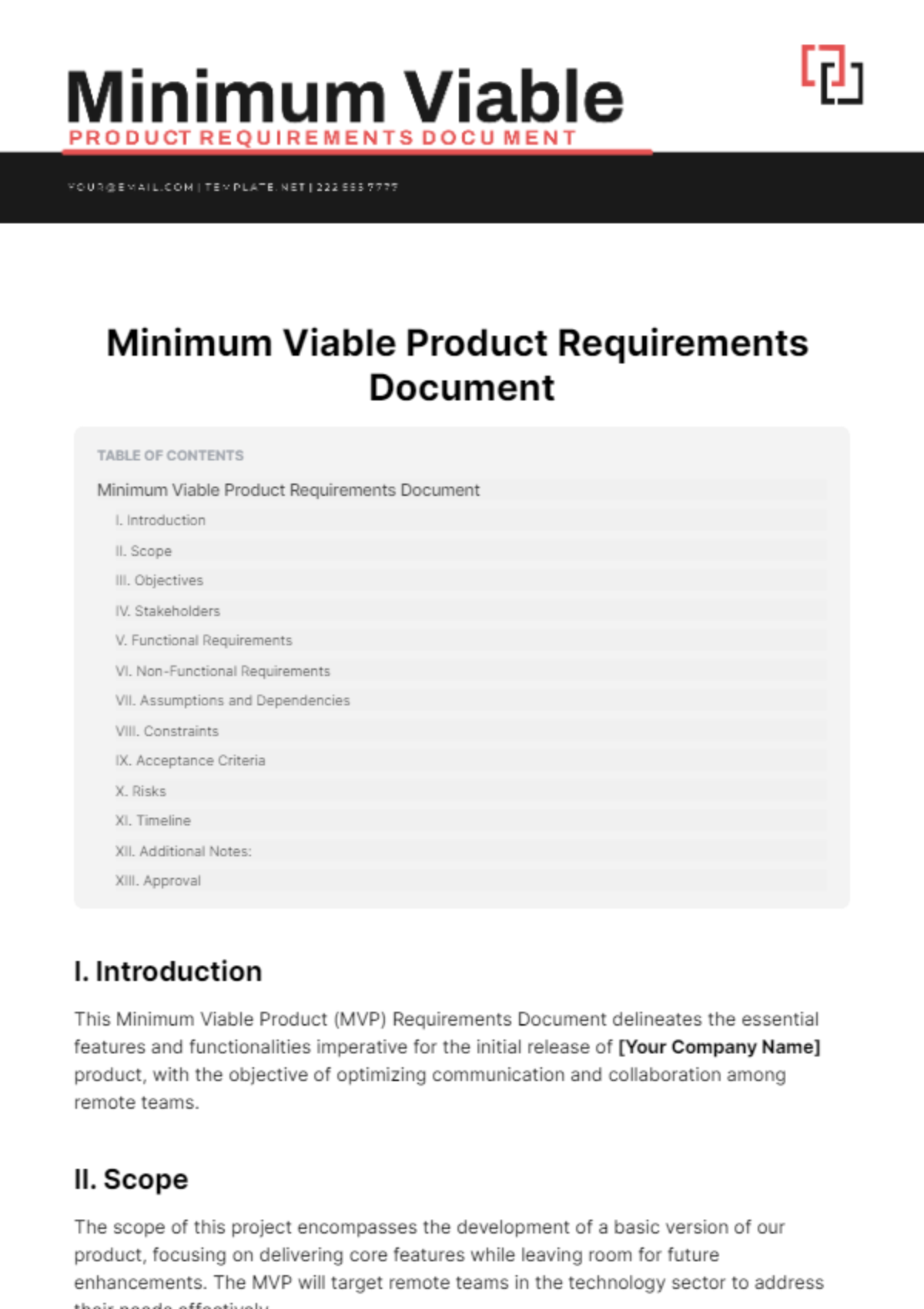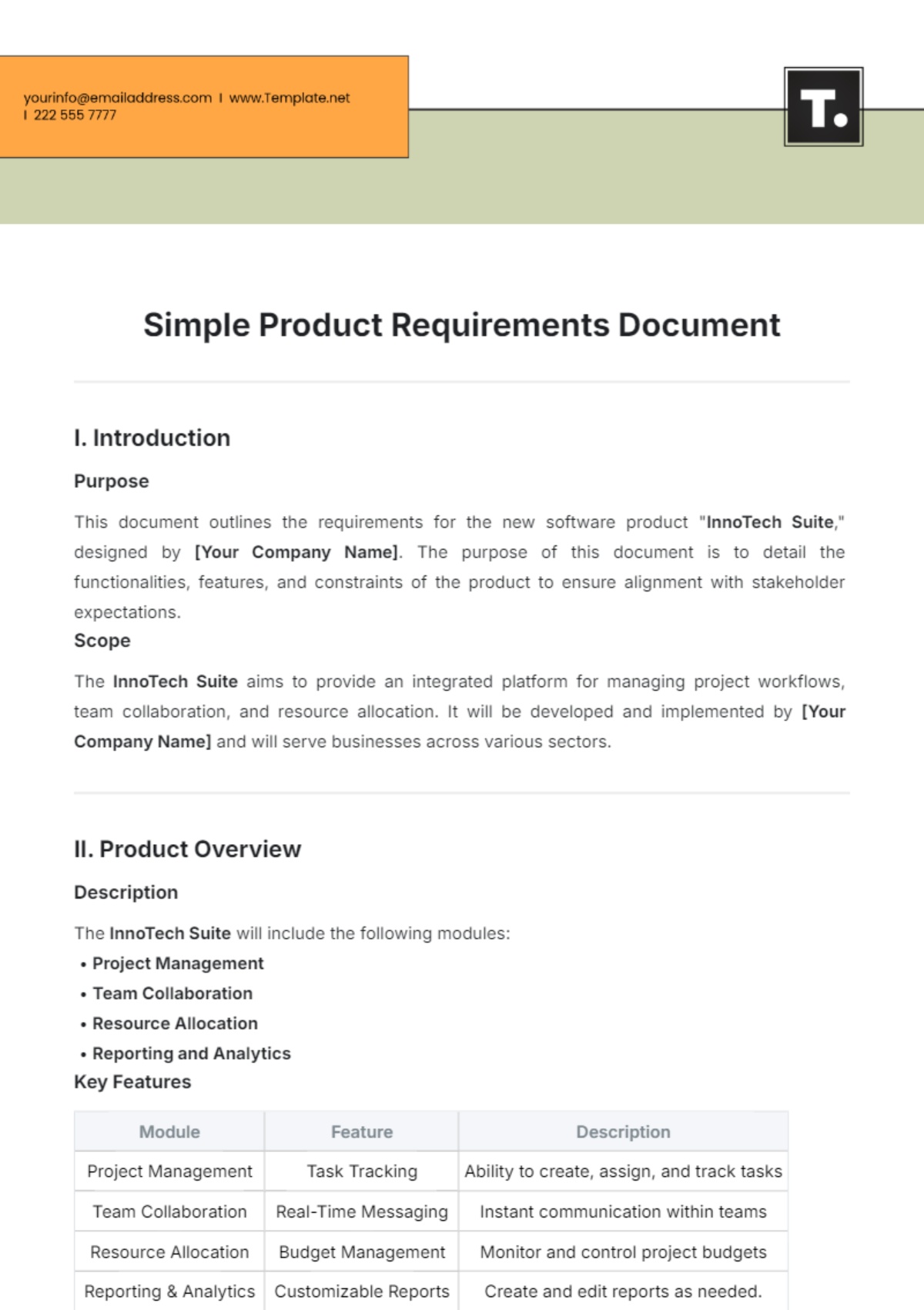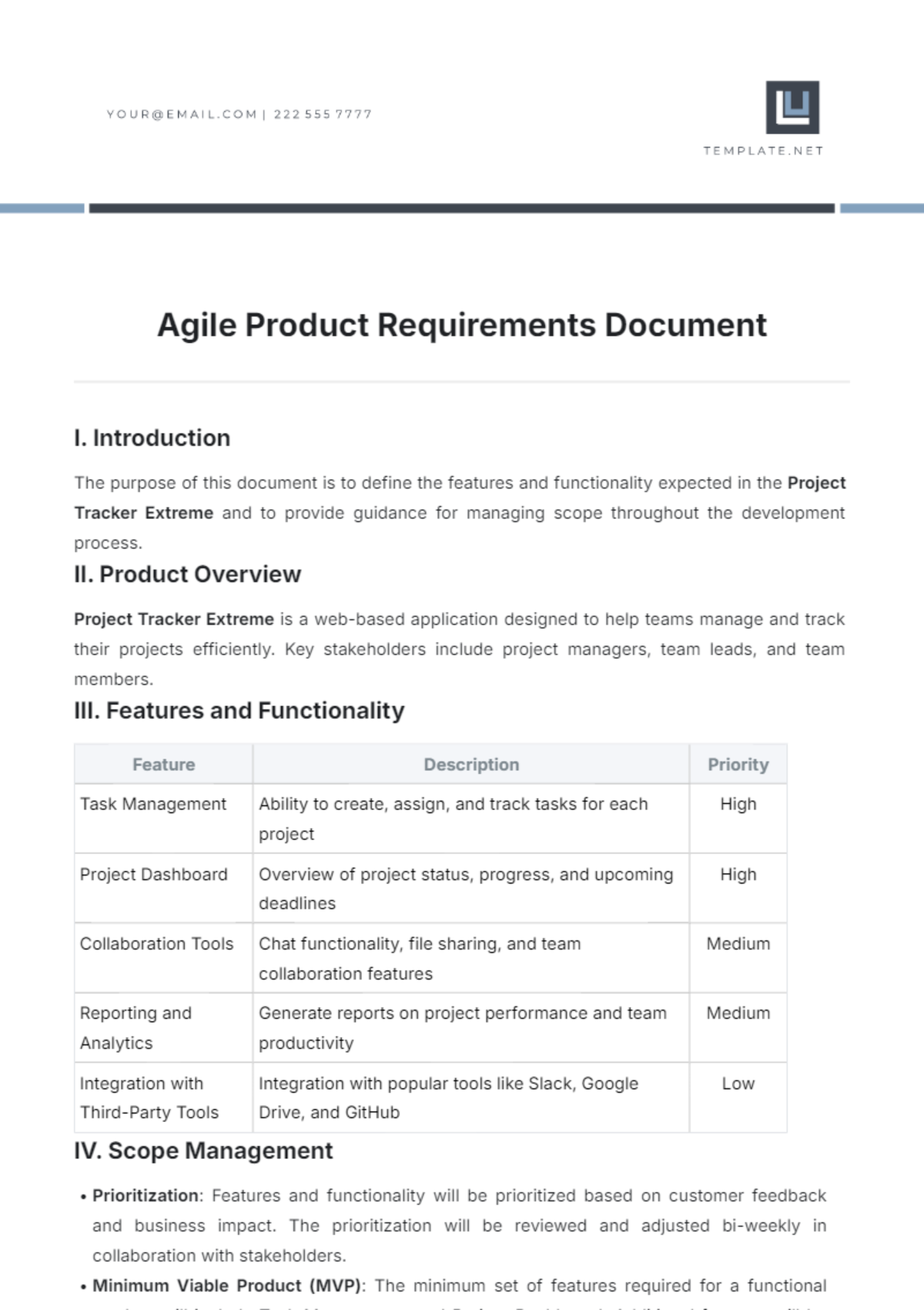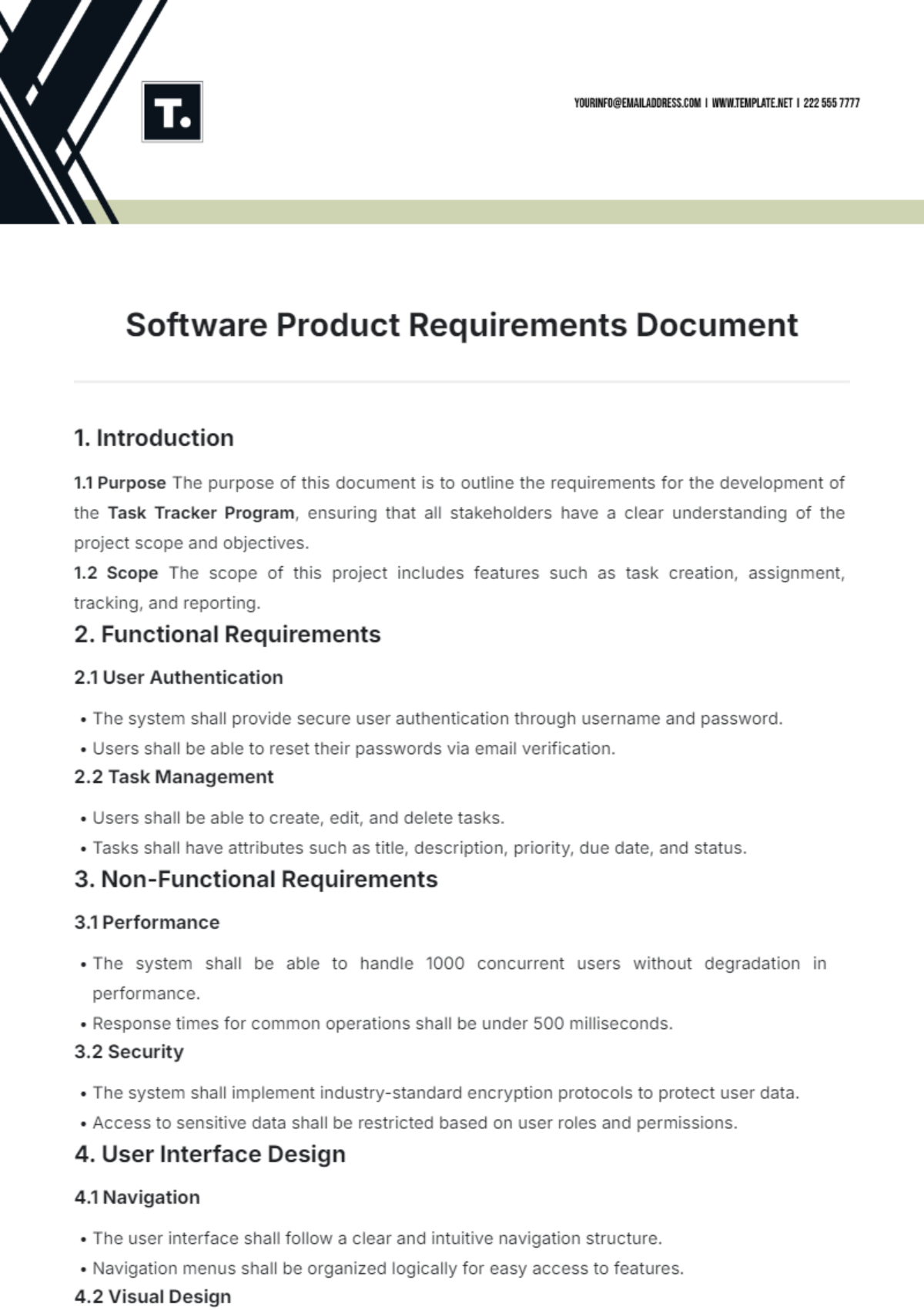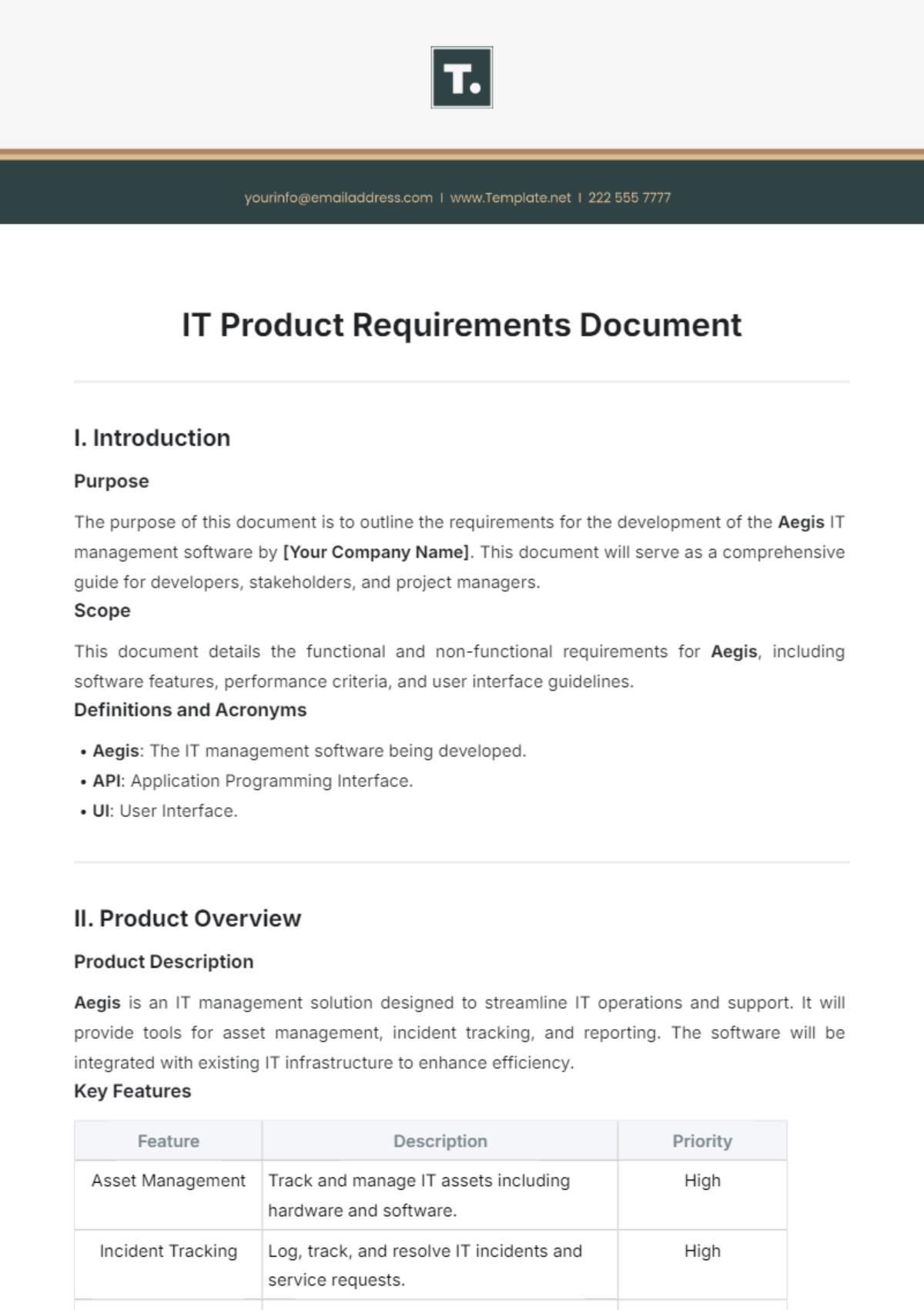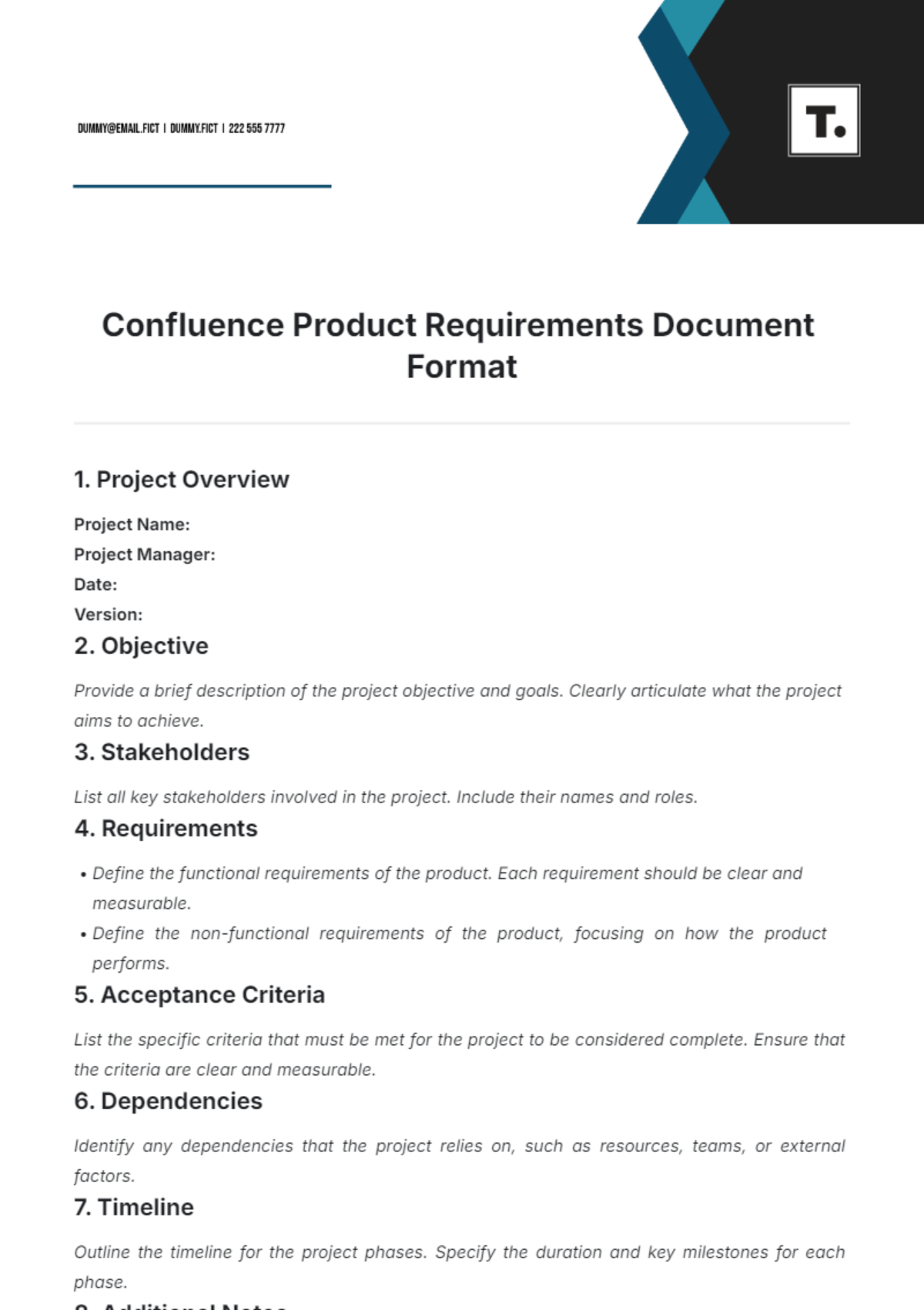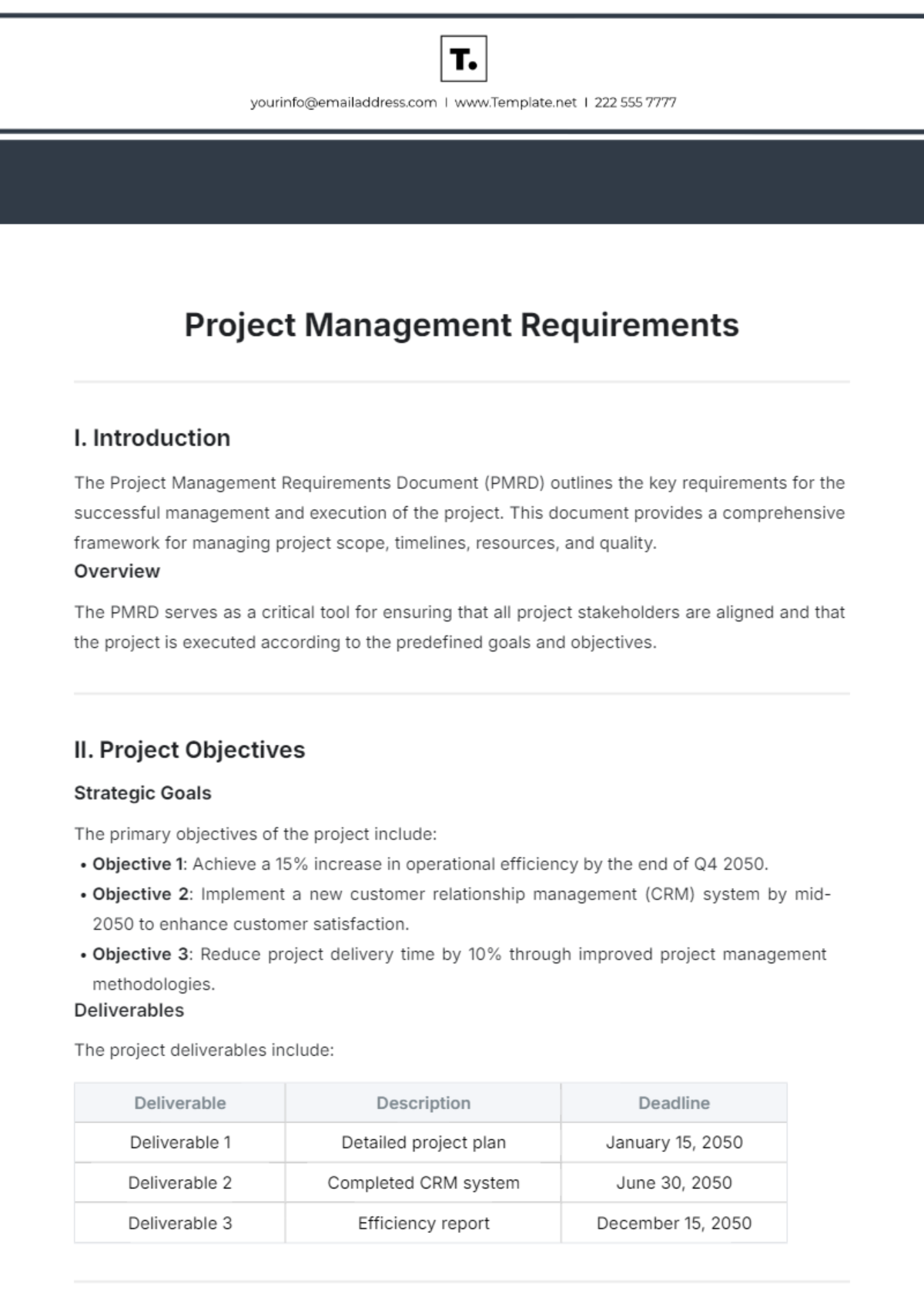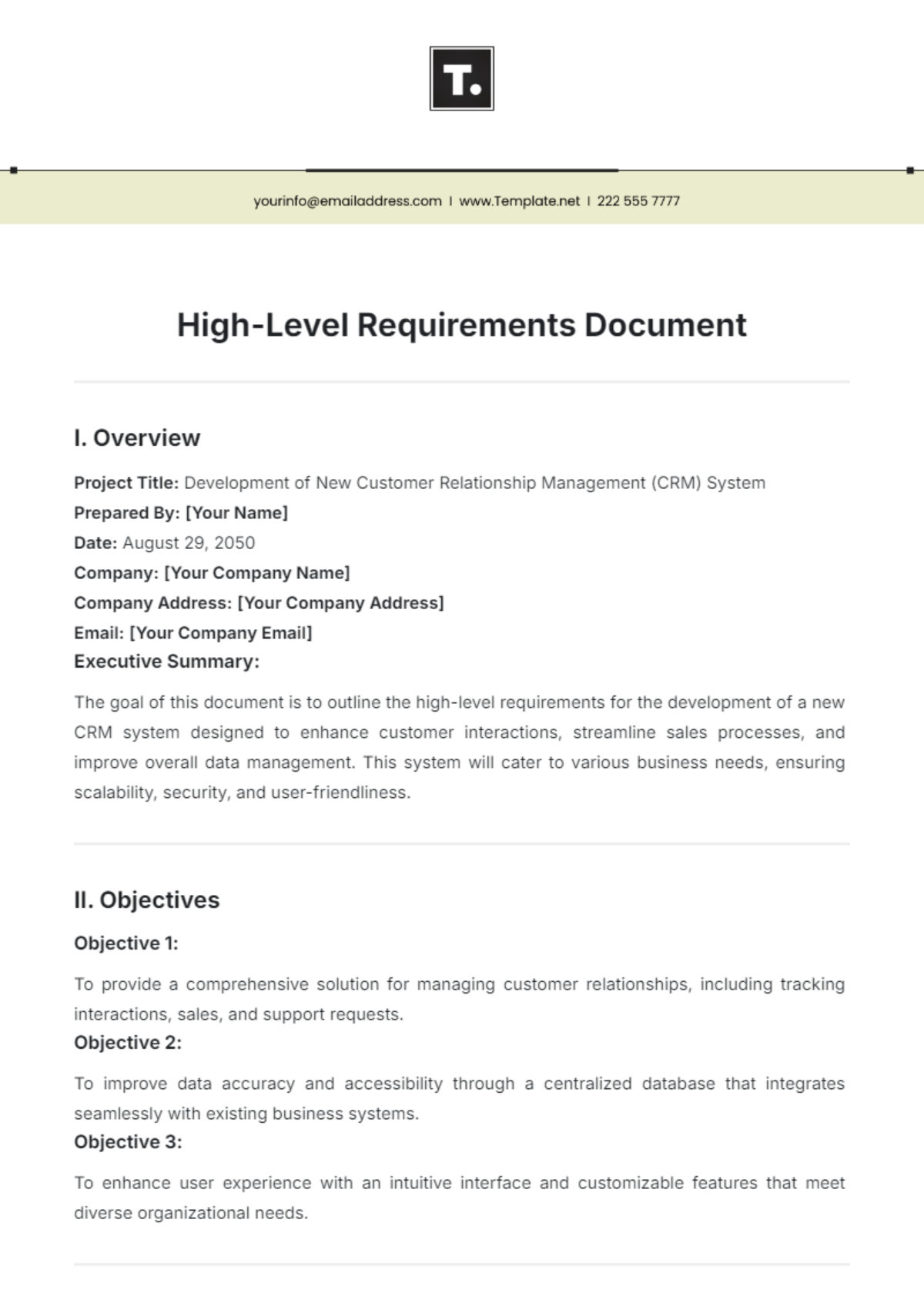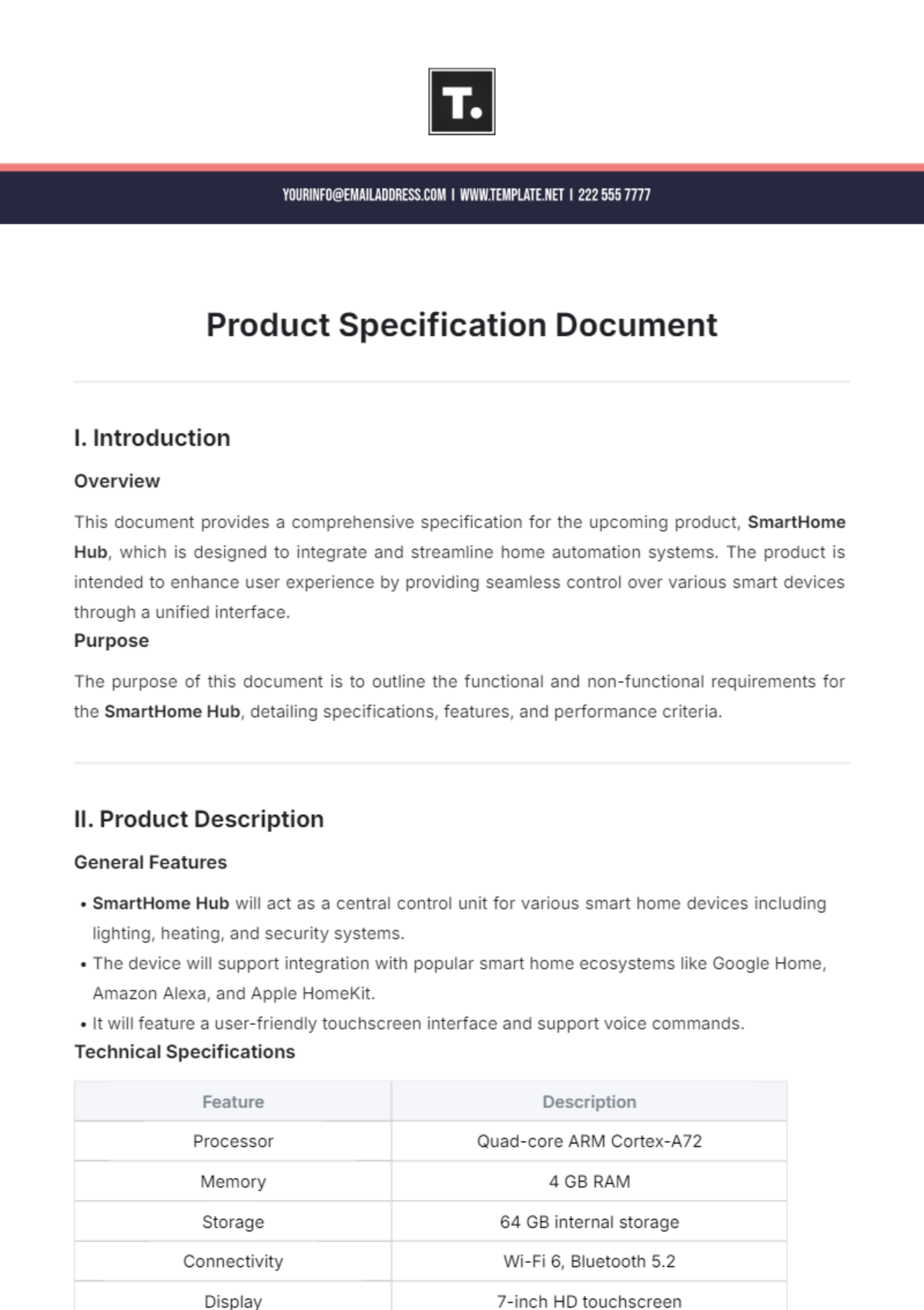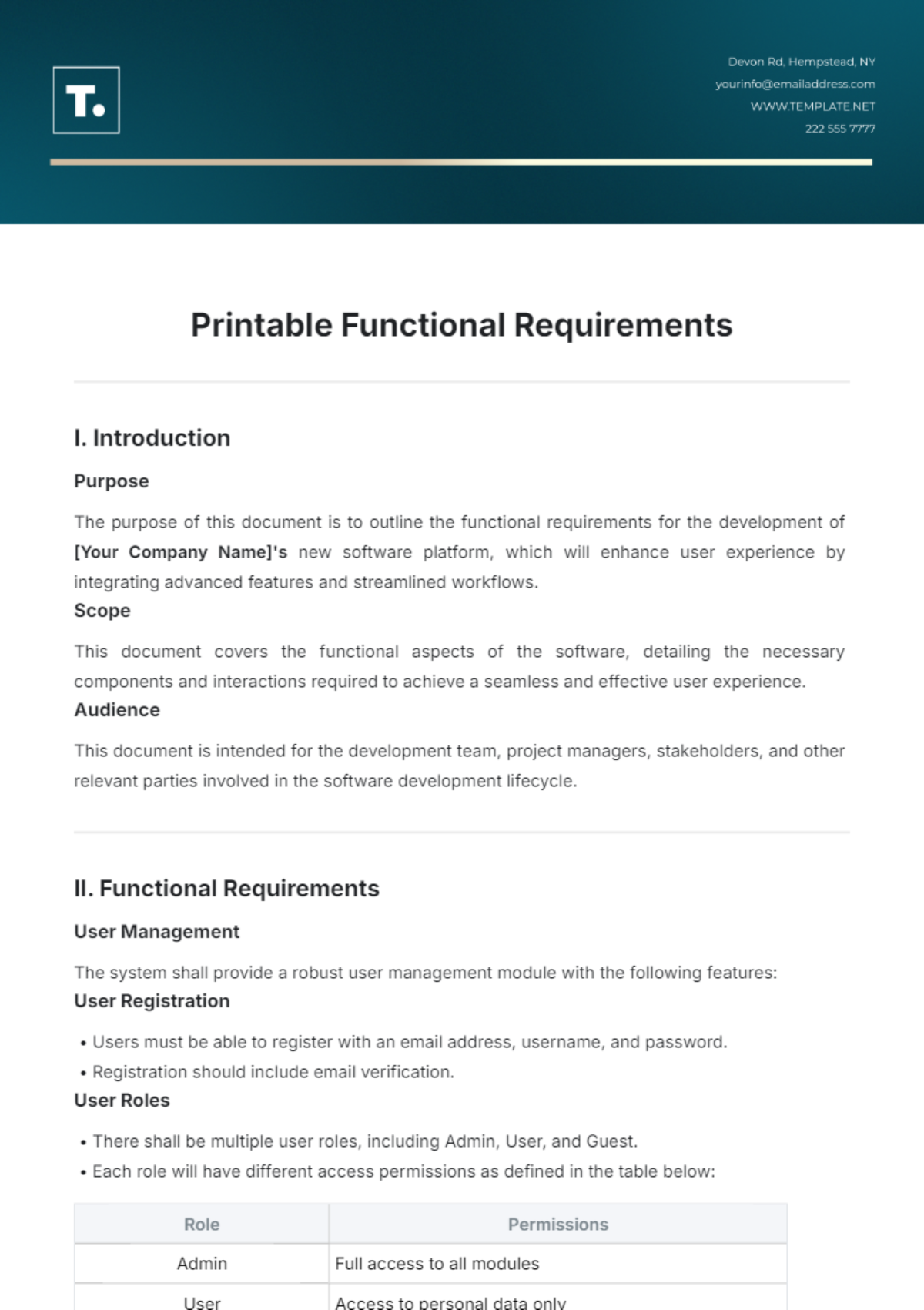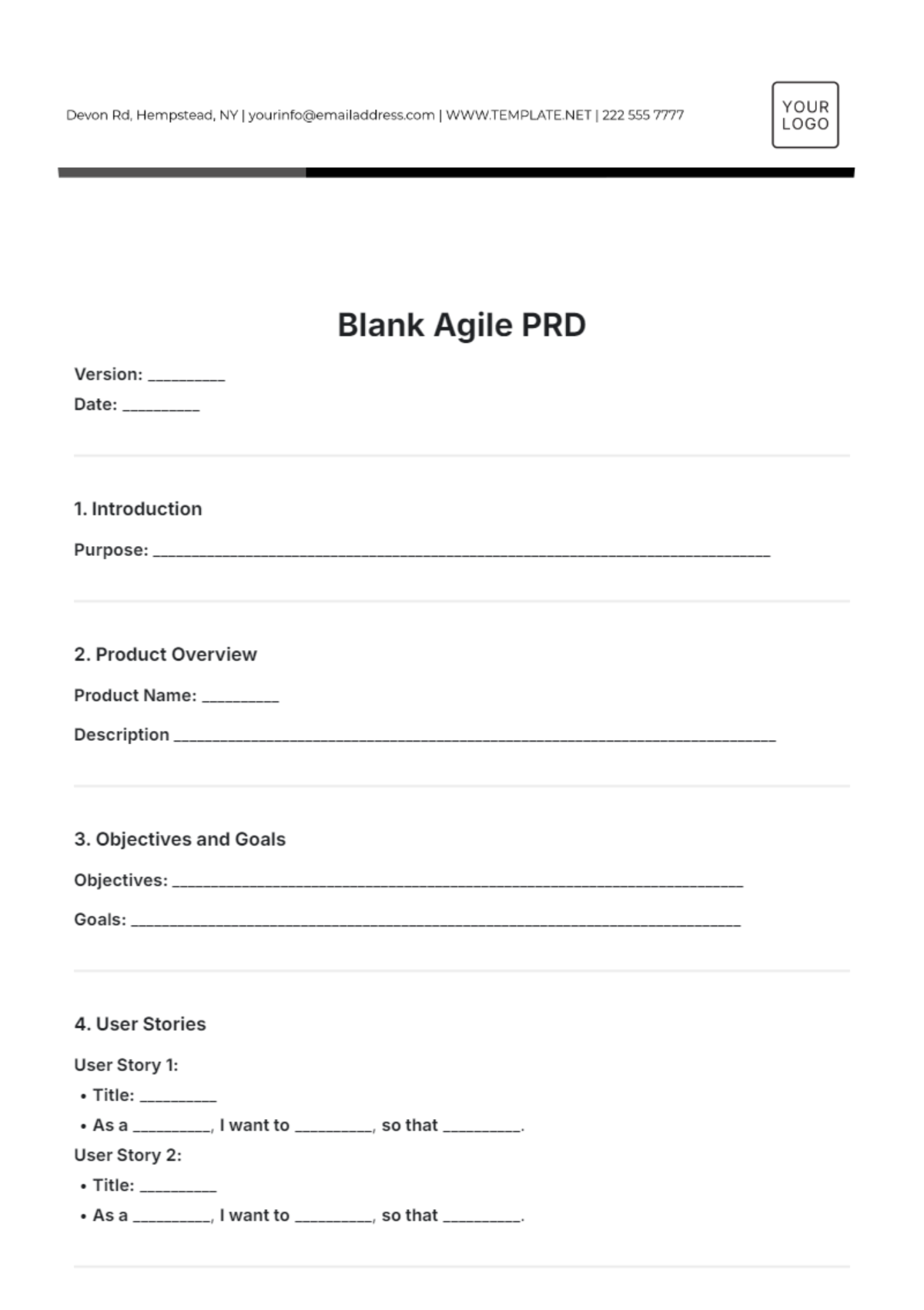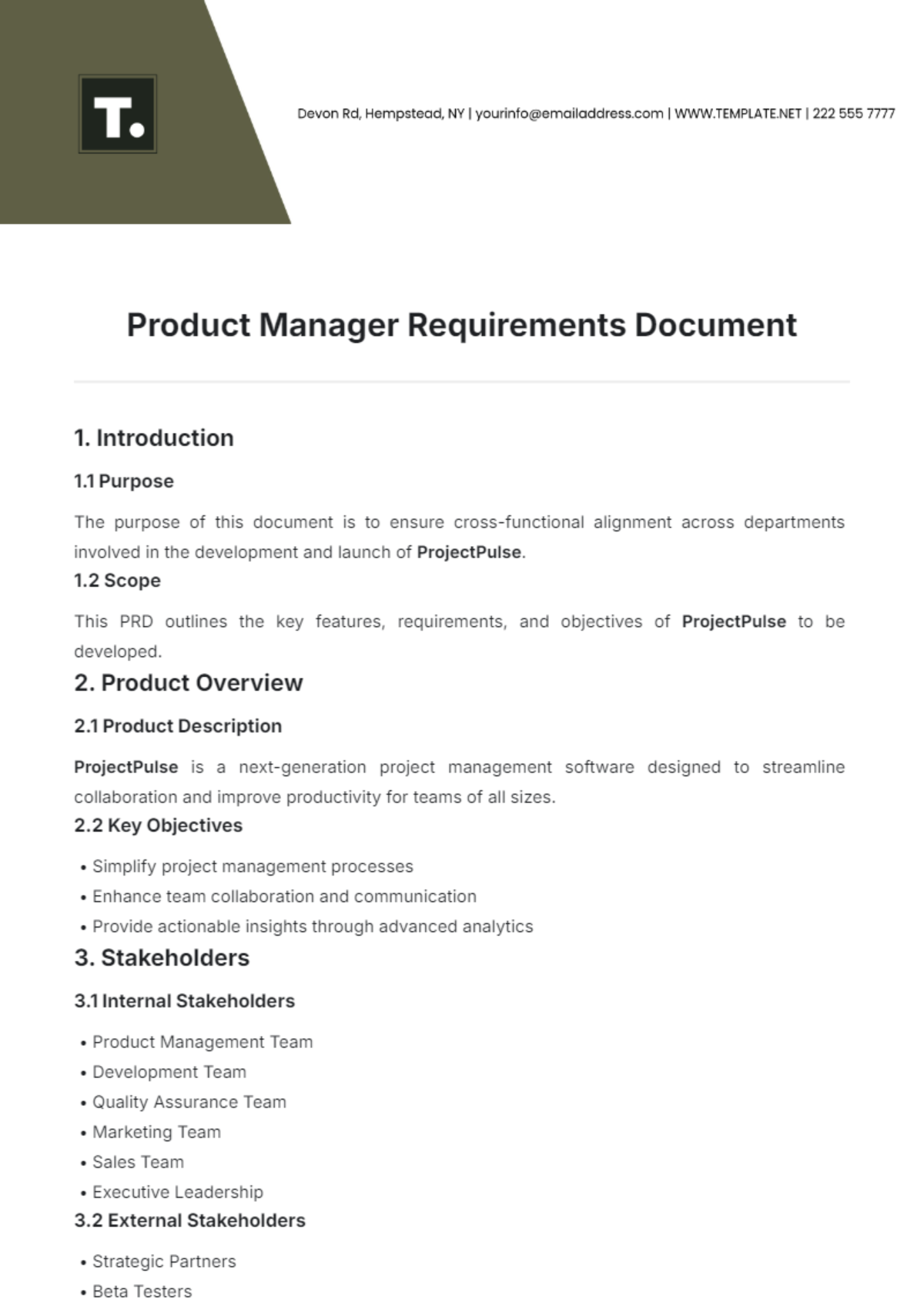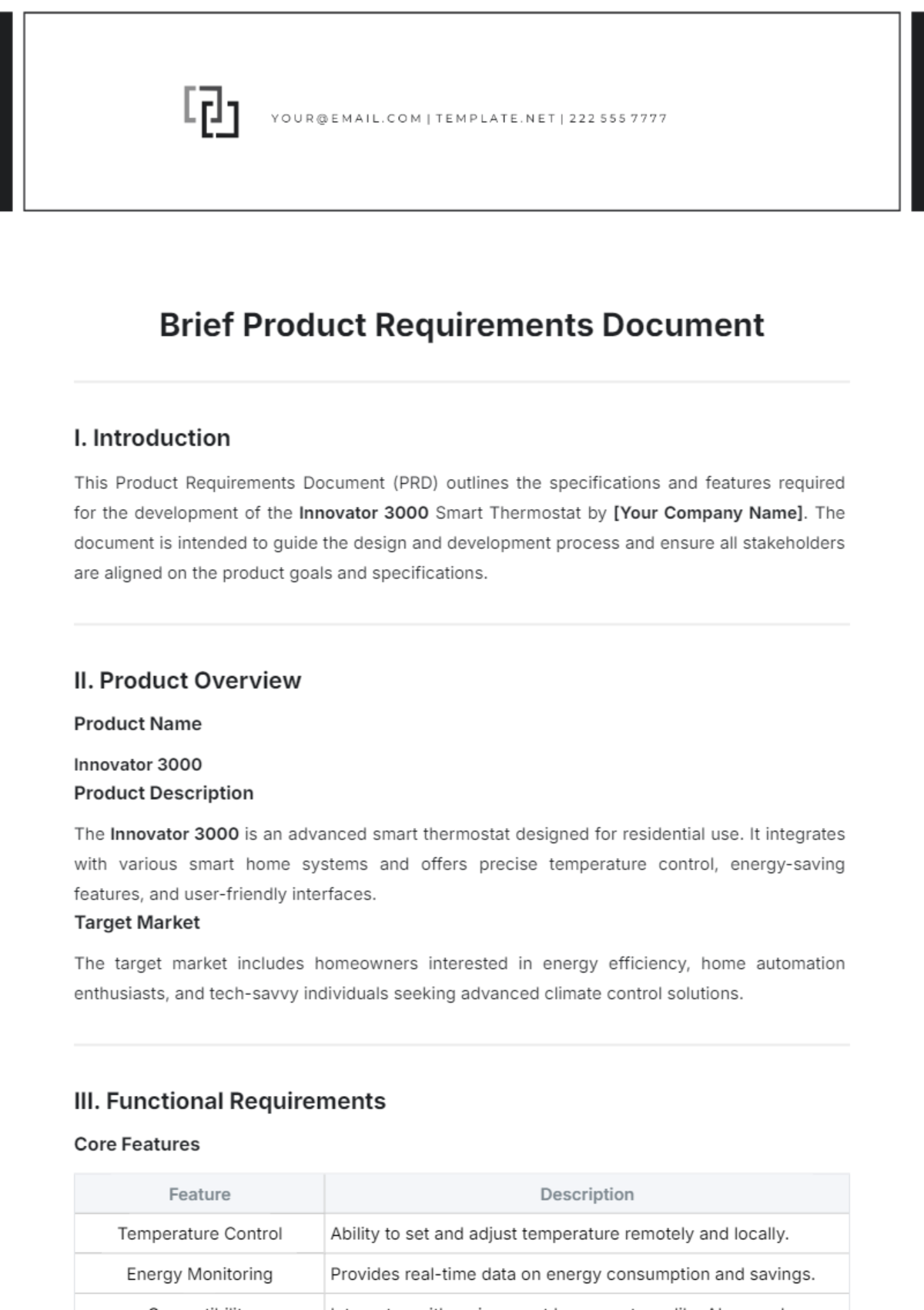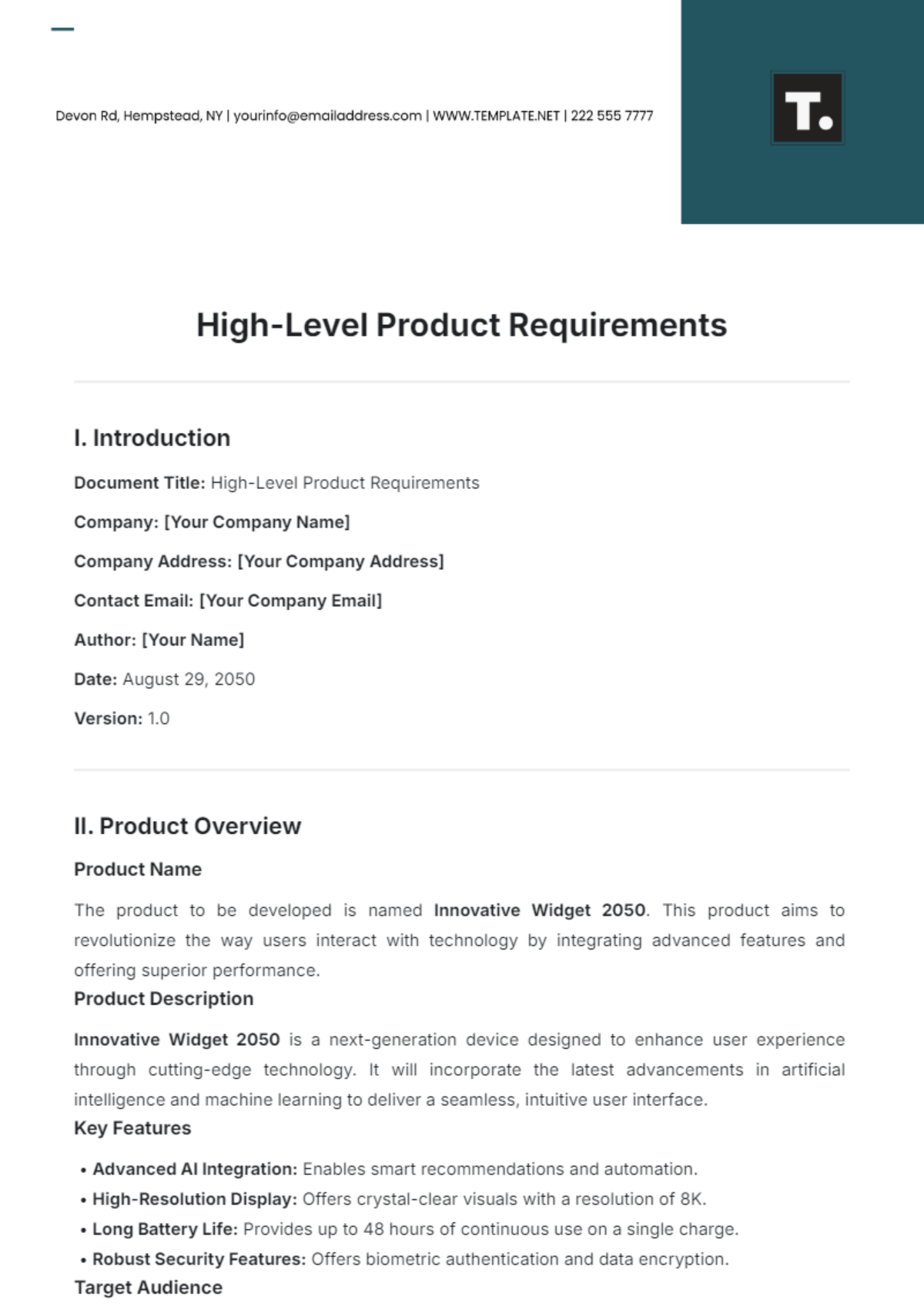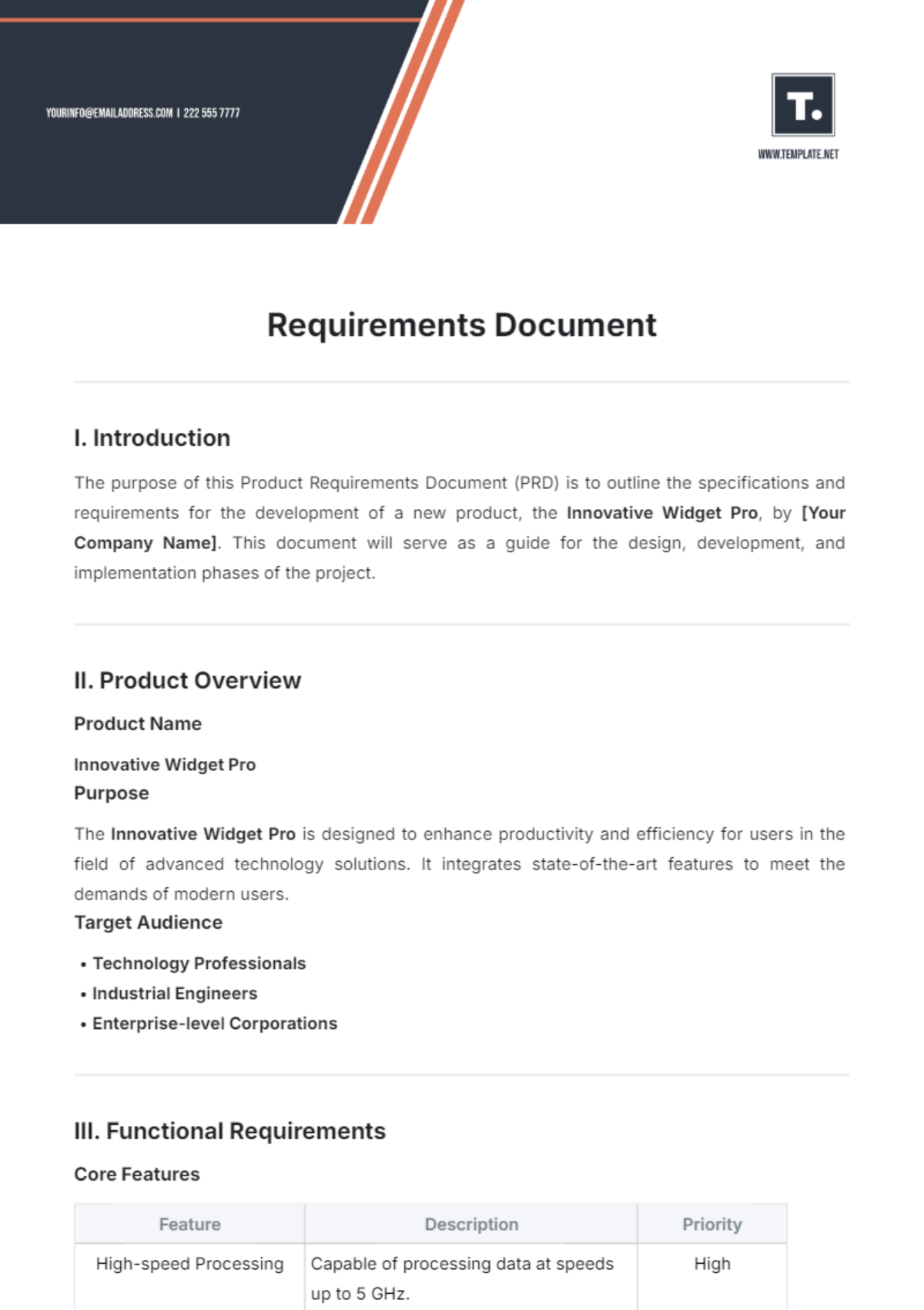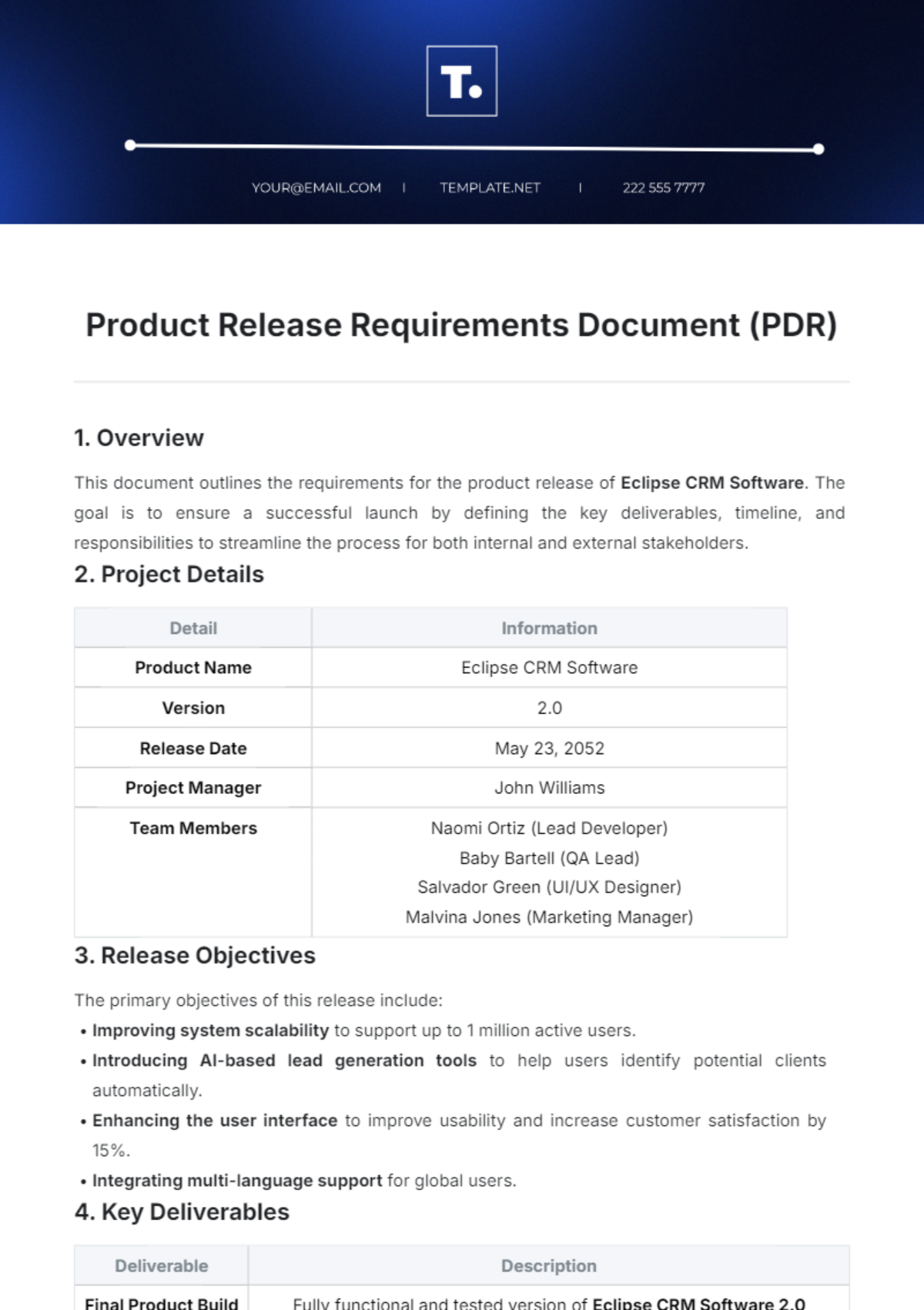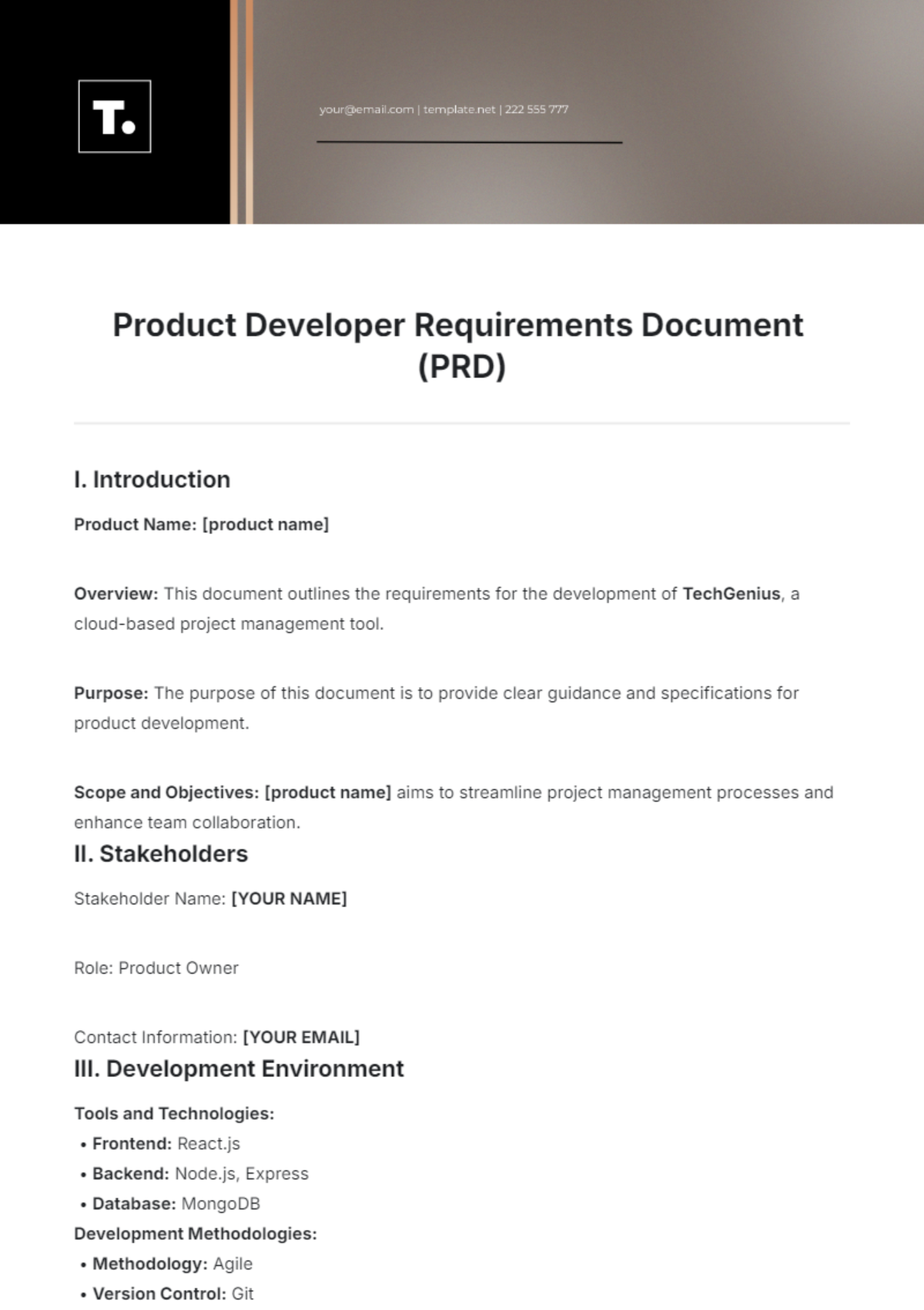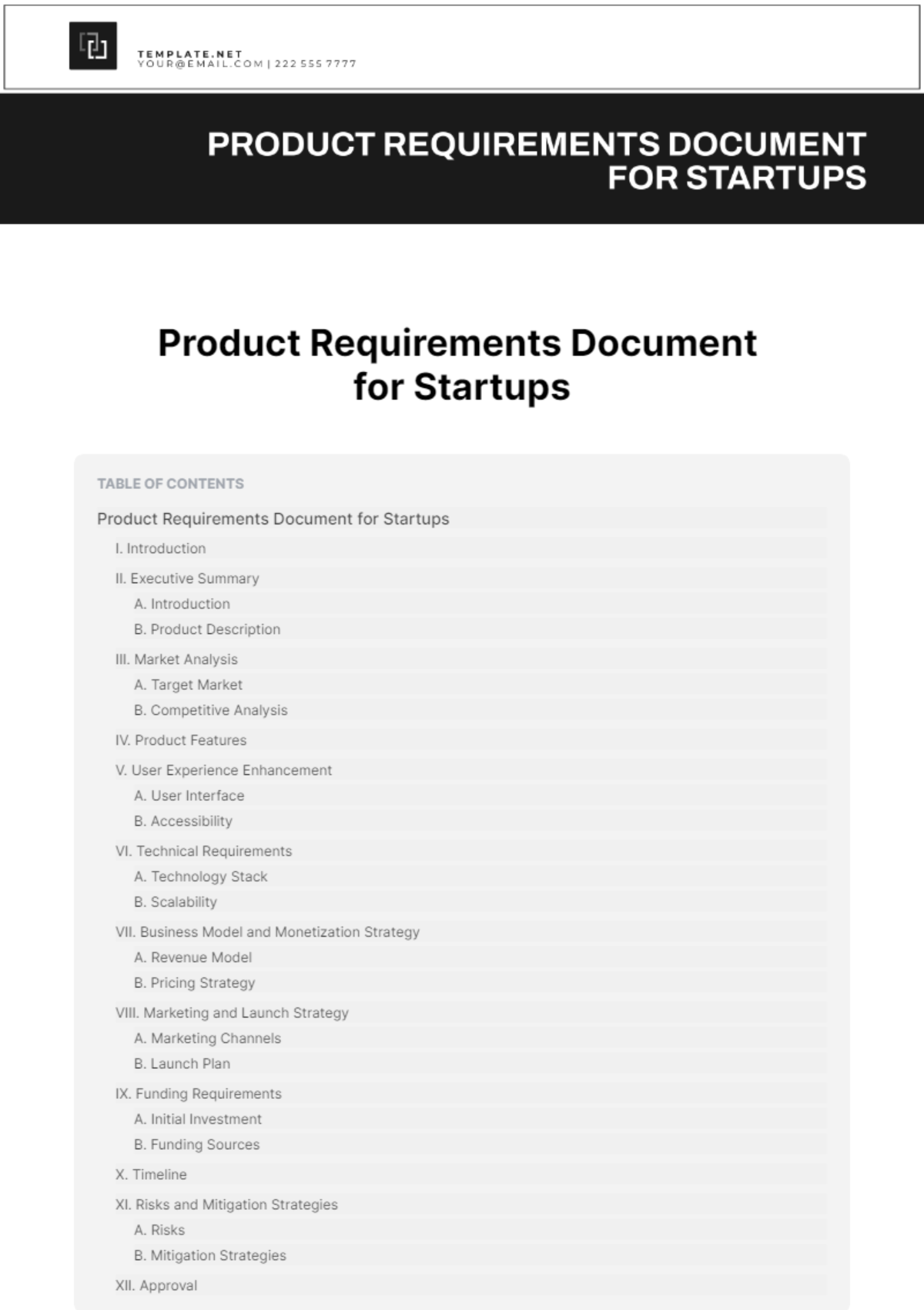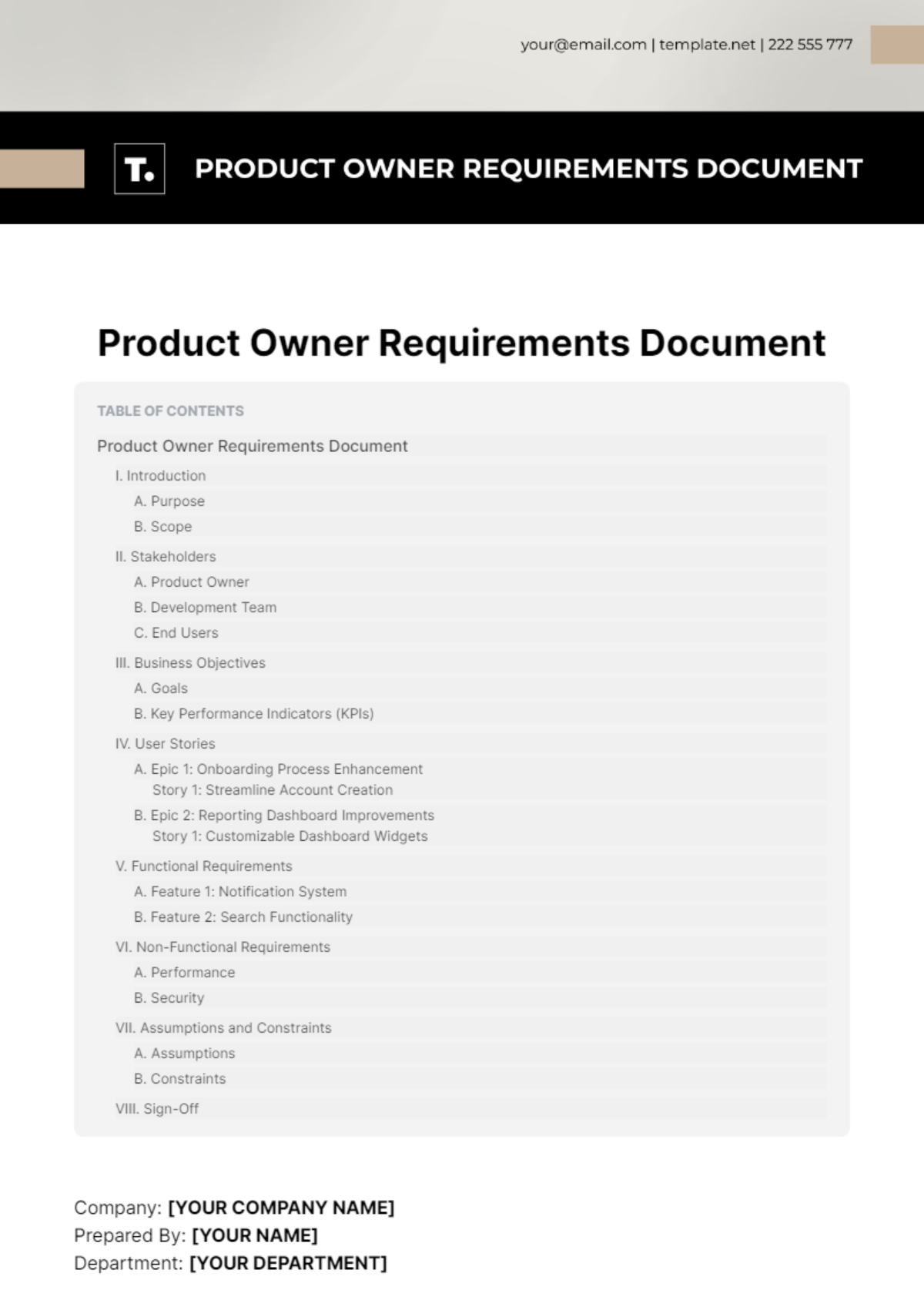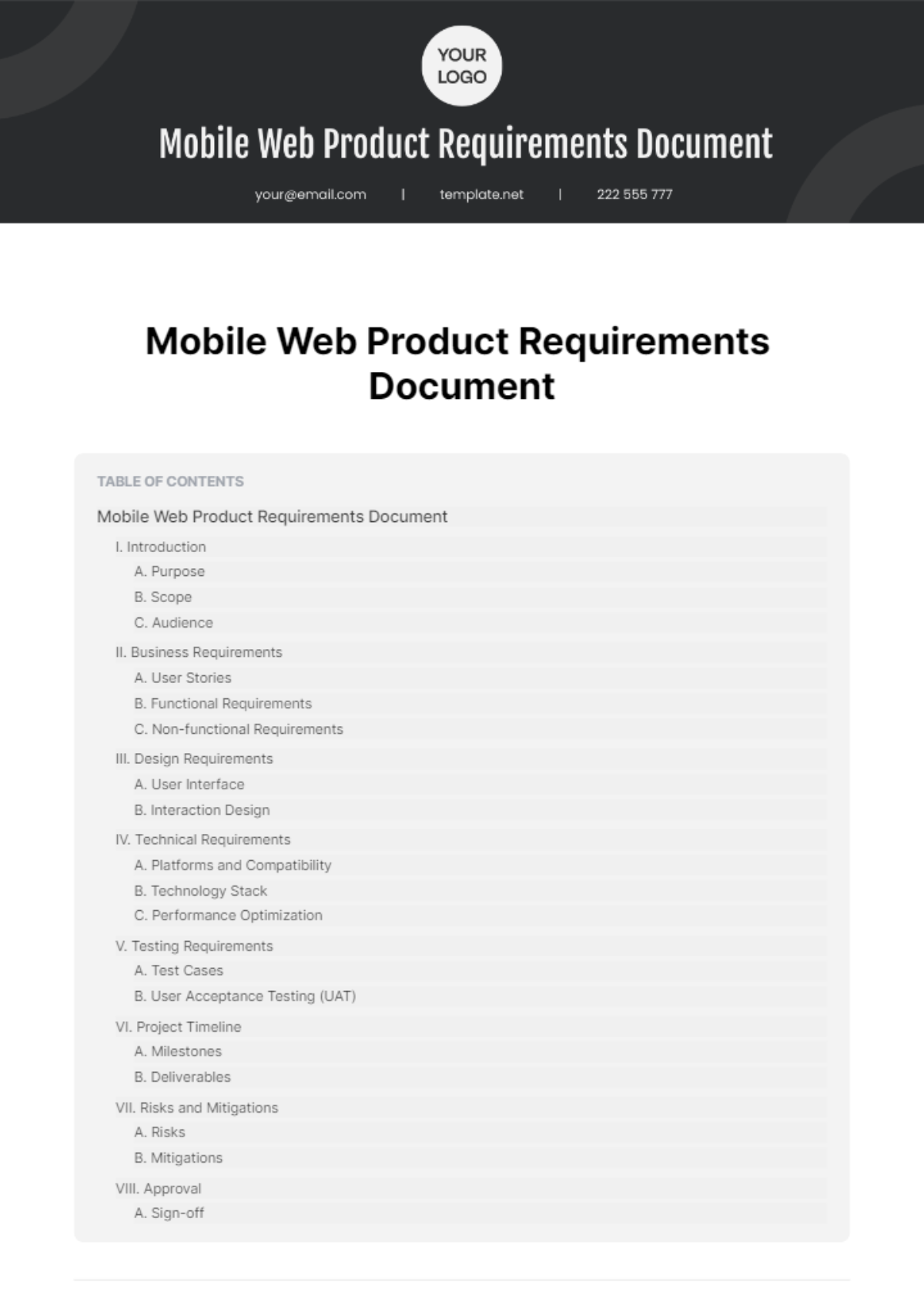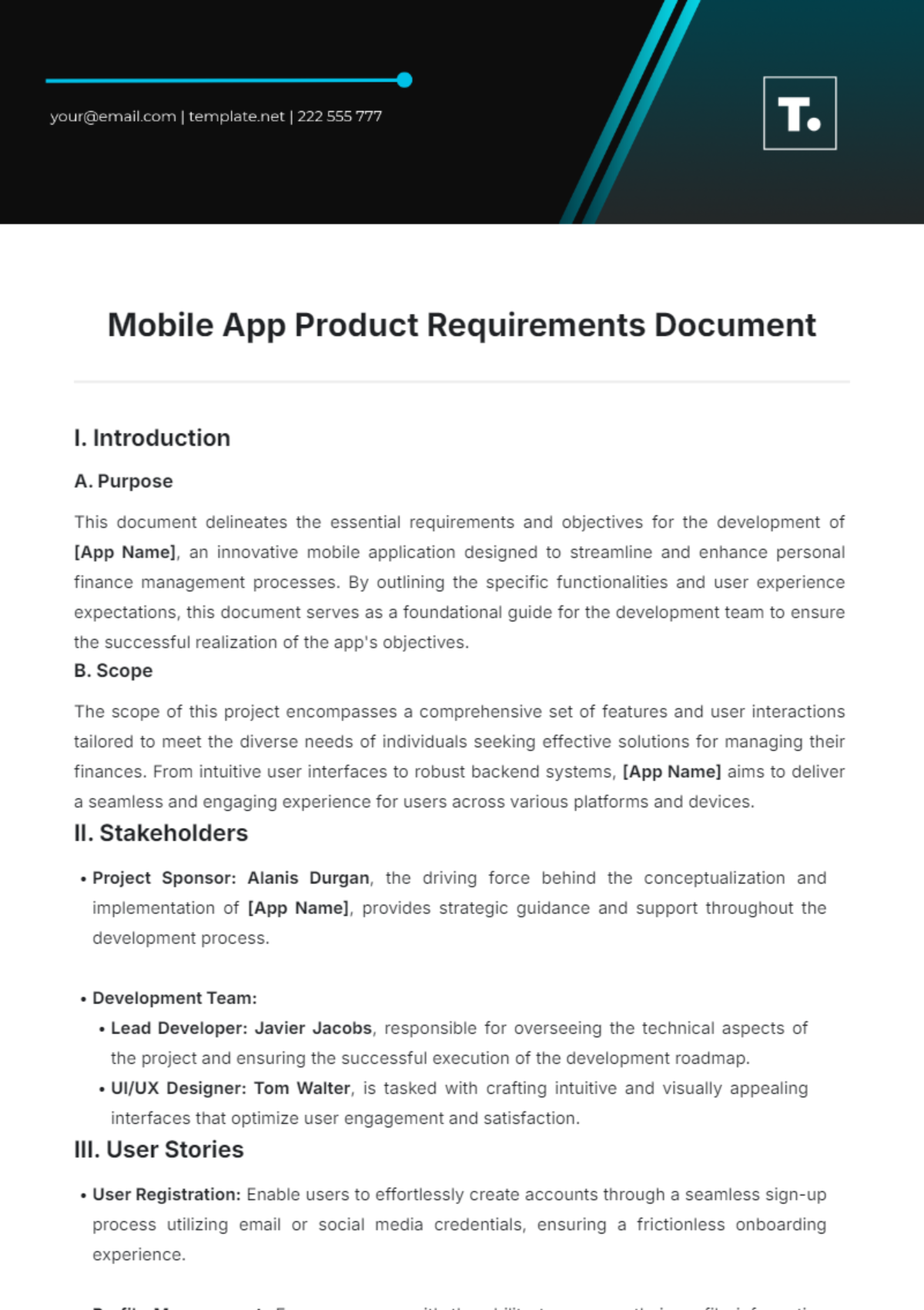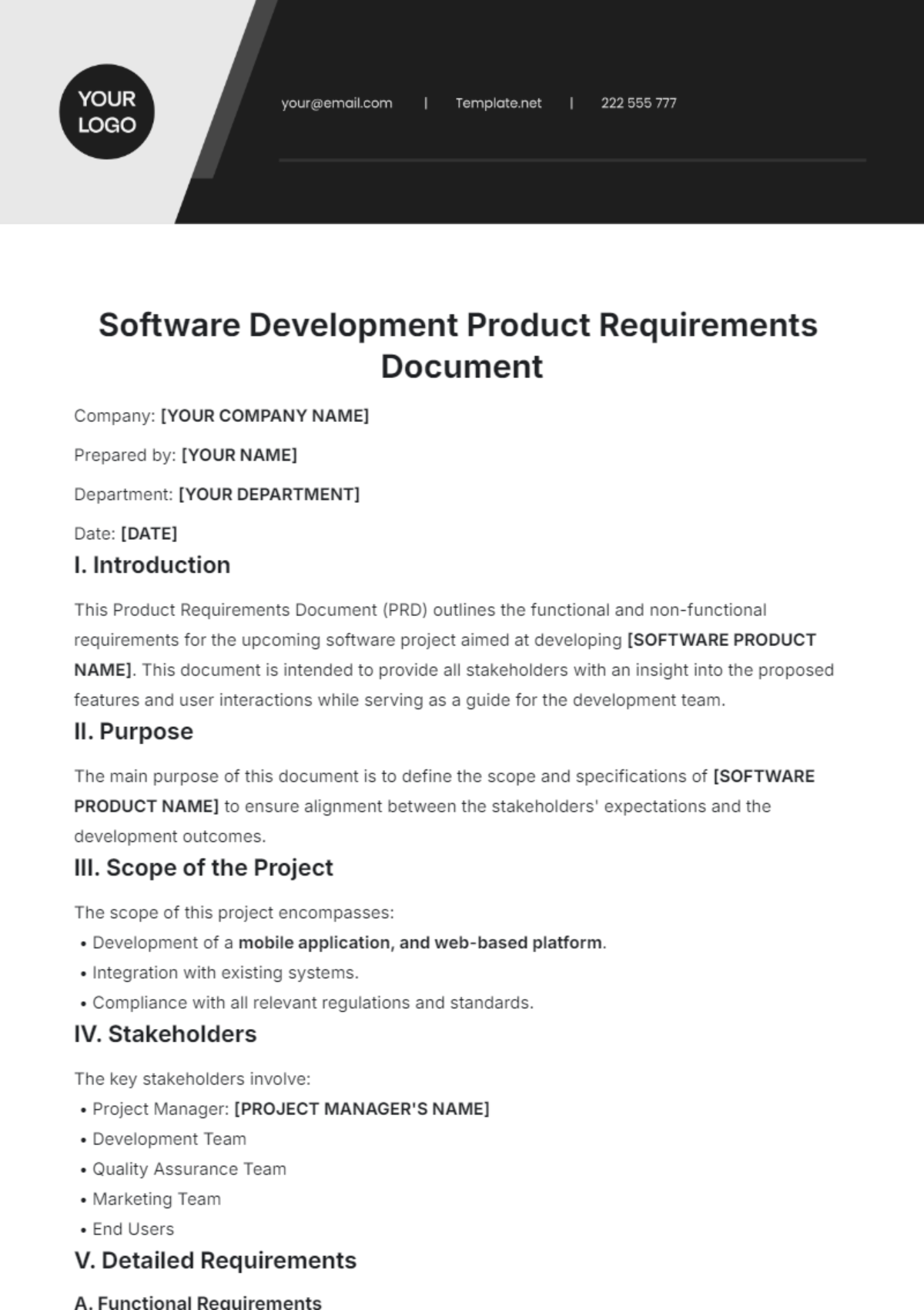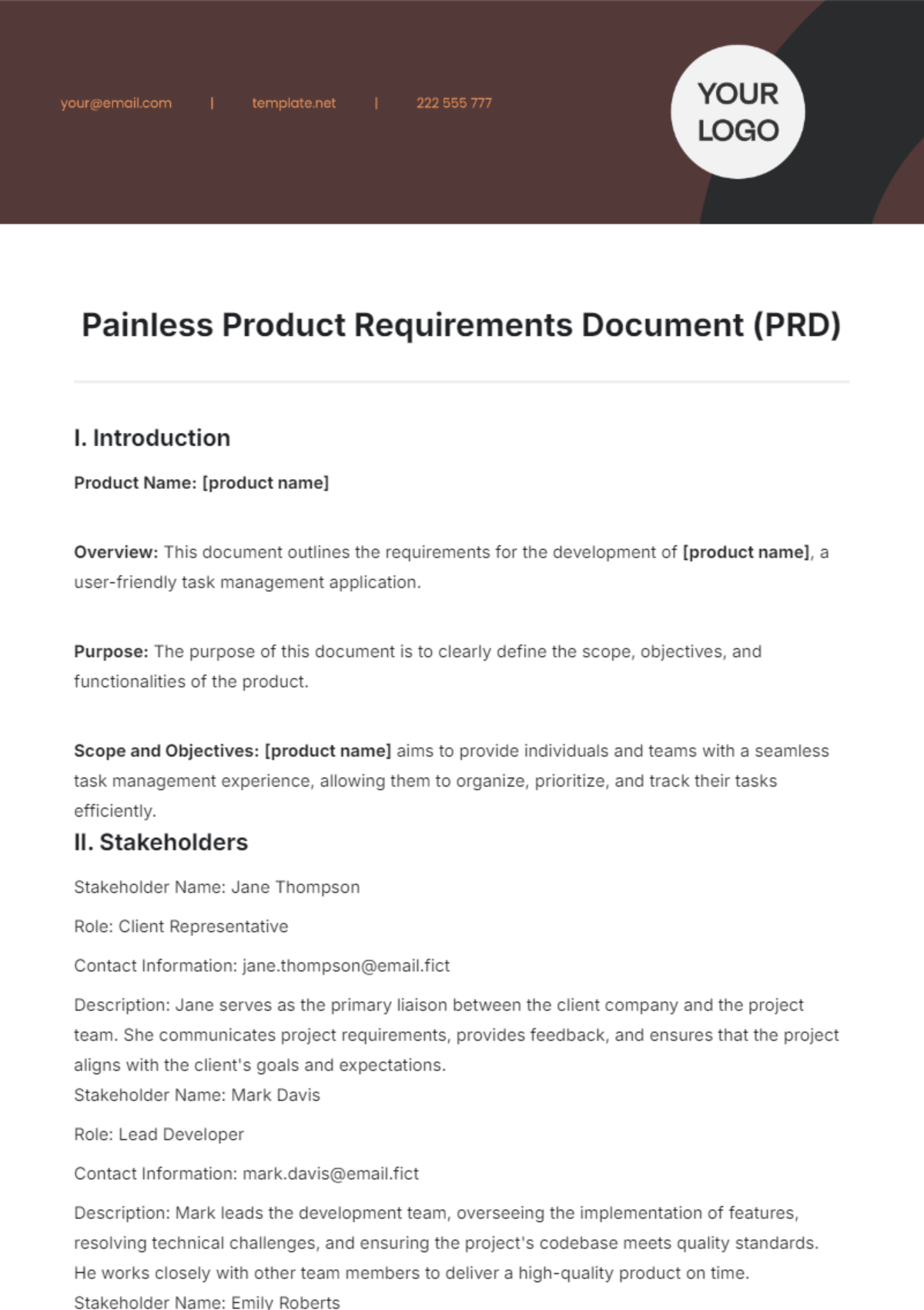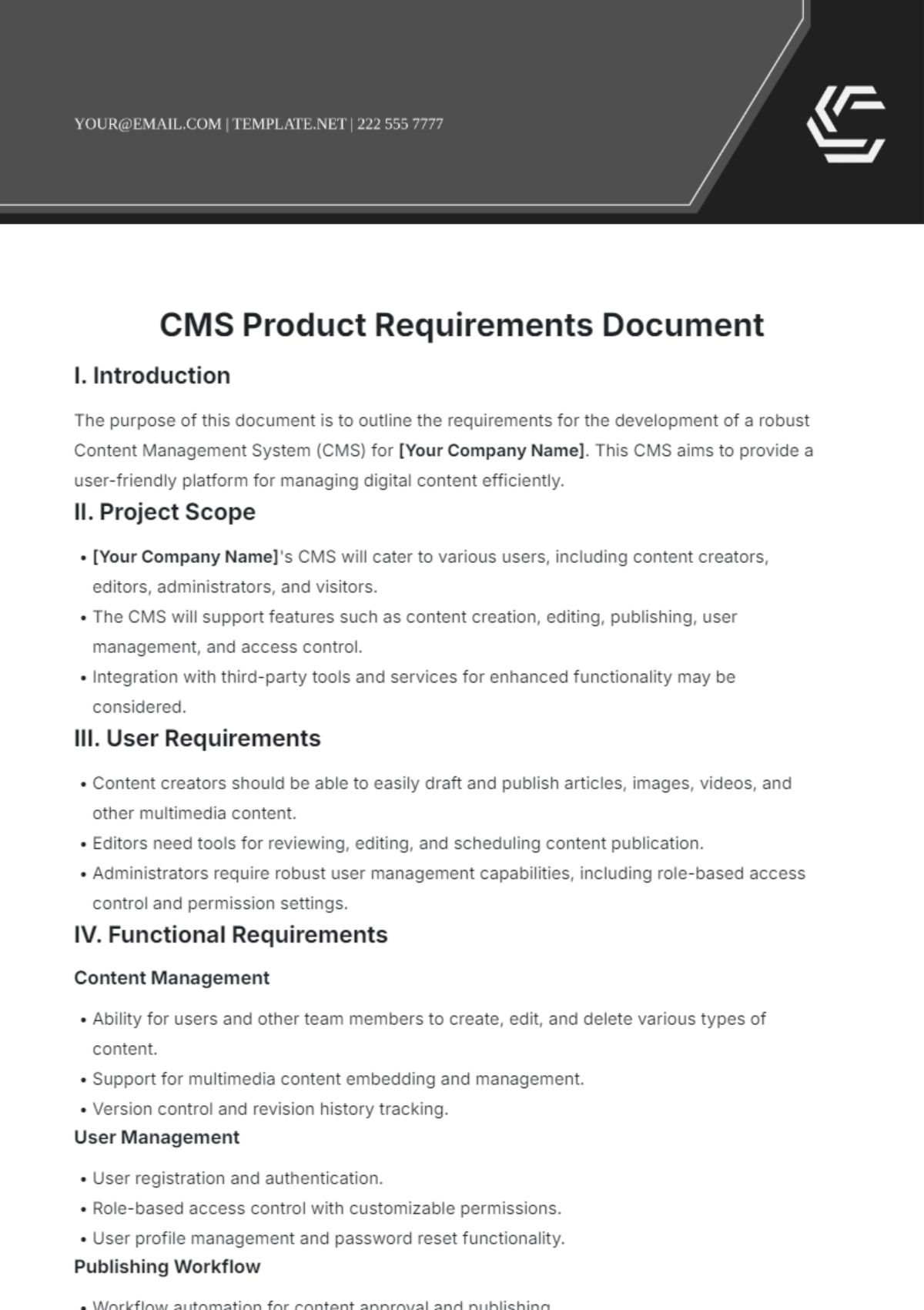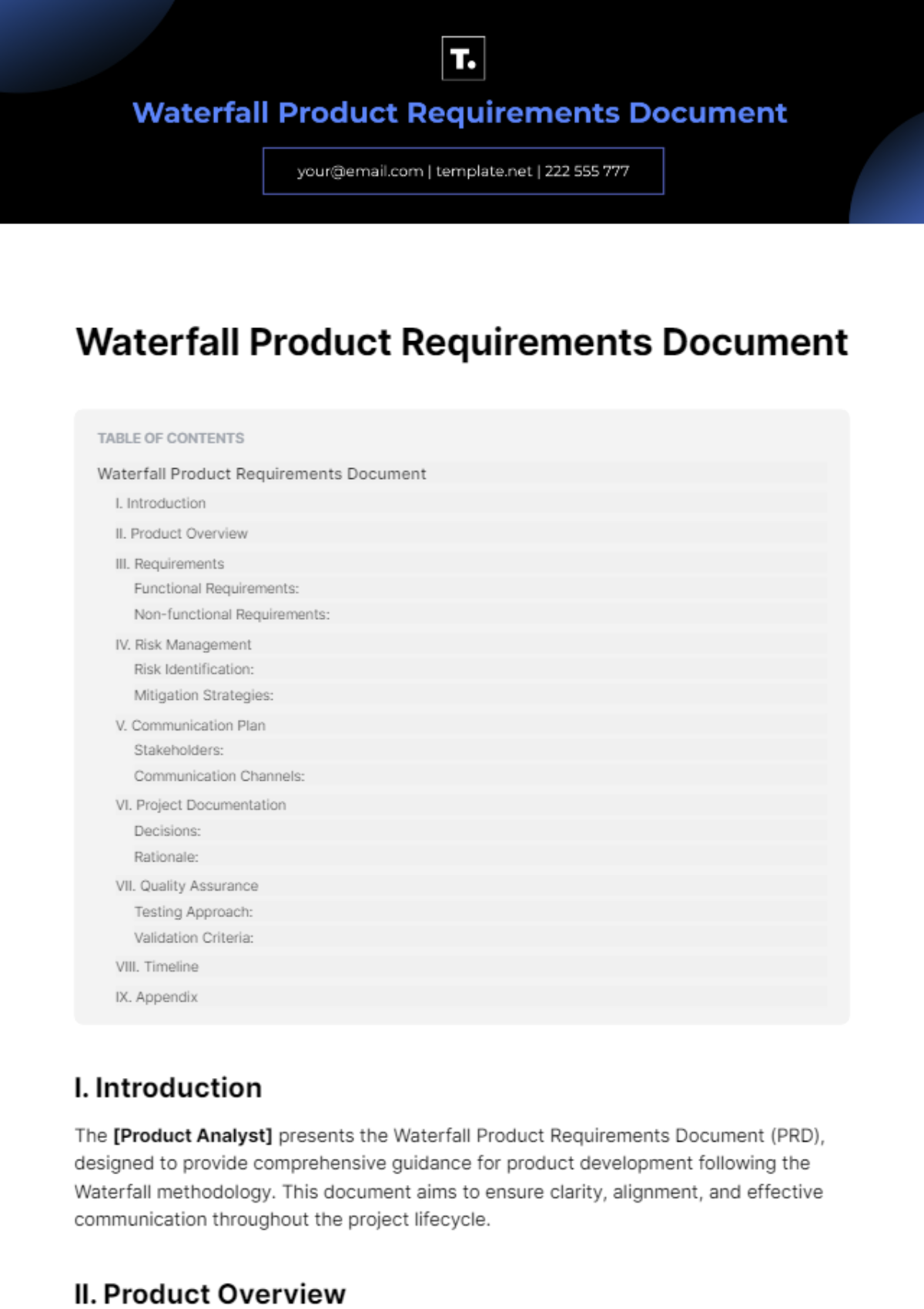E-commerce Product Requirements Document (PRD)
1. Overview
This document outlines the product requirements for developing the e-commerce platform of [Your Company Name]. The platform will provide a comprehensive and user-friendly solution to enable efficient online shopping, inventory management, and order processing.
2. Product Goals
Facilitate seamless browsing, searching, and purchasing of products.
Support international transactions with multiple currencies and shipping methods.
Ensure scalability and reliability to handle peak traffic.
Provide a robust admin dashboard for [Your Company Name] to manage products, customers, and orders in real-time.
3. Target Audience
Consumers
End-users looking for a smooth online shopping experience.
Vendors
Small to mid-sized businesses selling through the platform.
Internal Teams
Staff managing inventory, orders, and customer queries.
Administrators
Technical and operational staff responsible for platform upkeep.
4. Features and Functionality
4.1 User Features
Product Browsing: Users can explore products using category filters, price ranges, and brand options.
Wishlist: Users can save items to their wishlist and get notifications on stock or price changes.
Reviews and Ratings: Display customer reviews to improve purchase confidence.
Multi-language Support: The platform will be available in English, Spanish, and French.
Mobile Optimization: Fully optimized for mobile devices to ensure a smooth experience.
4.2 Admin Features
Product Management: Add, edit, and remove product listings with ease.
Order Dashboard: Manage orders, track shipping, and process returns.
Customer Management: Monitor customer activity, assist with queries, and view purchase history.
Reporting Tools: Generate sales reports, inventory updates, and customer behavior insights.
API Access: Integrate external systems like ERPs and third-party logistics services.
5. User Experience (UX) Requirements
Mobile-First Design: Prioritize mobile users with responsive design.
Easy Navigation: Simple navigation structure to reduce customer drop-off rates.
Quick Checkout: Allows users to save payment methods and shipping details for fast transactions.
6. Security and Privacy
SSL Encryption: All communication and transactions must be encrypted using SSL.
Two-Factor Authentication: For administrators and optional for customers.
Data Protection: Ensure compliance with GDPR and CCPA to protect customer data.
PCI Compliance: Adhere to Payment Card Industry Data Security Standards for secure transactions.
7. Performance Metrics
Metric | Target |
|---|---|
Load Time | Less than 1.5 seconds per page |
Uptime | 99.9% uptime to ensure continuous operation |
Checkout Conversion | 5% or higher conversion rate |
Customer Retention | At least 75% within the first year |
Order Processing | Less than 2 seconds per transaction |
8. Technical Requirements
Component | Technology/Details |
|---|---|
Frontend Framework | React.js |
Backend | Node.js, Express |
Database | PostgreSQL and Redis for caching |
Hosting | AWS with Auto Scaling |
Payment Gateways | Stripe, PayPal, and local payment providers |
Security | SSL, 2FA, PCI Compliance |
API Integration | Open API for third-party integration |
9. Timeline and Milestones
Phase | Details | Completion Date |
|---|---|---|
Phase 1: Product Browsing | User registration, product browsing, basic cart | May 2051 |
Phase 2: Checkout | Payment integration, order management, multi-currency | August 2051 |
Phase 3: Full Launch | Promotional tools, reporting, security enhancements | December 2051 |
10. Stakeholders
Product Manager: Charley Stokes
Tech Lead: Golda Larson
Marketing Director: Erica Price
CEO: [Your Name]
11. Budget and Resources
Development Budget: $500,000, covering design, development, and infrastructure costs.
Marketing Budget: $100,000 allocated for digital marketing campaigns including social media and PPC.
Team: 3 developers, 1 UX/UI designer, 1 QA engineer, 2 marketing specialists.
12. Risks and Mitigation
Risk | Description | Mitigation Strategy |
|---|---|---|
Payment Gateway Delays | Potential delays in integration due to compliance issues | Early collaboration with PayPal and Stripe |
Server Overload During Peak Periods | High traffic during sales events could overwhelm servers | Scale infrastructure with AWS Auto Scaling |
